Life Lessons from Chess: Strategy, Discipline, and Adapting to Change
Sep 26th, 2024
You’ve likely encountered a similar phrase before, perhaps in the context of art. Personally, I see chess as more than just a game—it’s a form of art in its own right. This led me to wonder: does chess mirror life as well? What parallels can we draw between the game and the daily battles we face? Could a chessboard’s 64 squares act as a microcosm, simulating the same struggles we encounter in real life?
Finding the answers isn’t easy, so I resorted to my go-to method for complex questions: writing about it. In doing so, I hope to share my thought process and conclusions with you.
Without creating too much suspense, I believe chess and life share many similarities. After countless revisions, I’ve managed to organize my thoughts, and I’m excited to present them to you. I hope you enjoy the journey we’re about to embark on.
This might be the most abstract blog I’ve written so far, and I’m still finding my way in this realm, so I appreciate your patience. If you’re familiar with my writing, you’ll know I like to break my ideas into clear topics before delving into each. So, let’s begin.
1. We’re in Control—In Chess and in Life

In chess, every move, every plan, and every risk we take is entirely our decision. We’re alone with our thoughts and responsible for the outcome. The same applies to life—although we have the support of family and friends, ultimately, our lives are in our hands.
Life can sometimes feel like a solo chess game on “hard mode,” where we alone shape our destiny. While loved ones can guide and support us, they cannot take control of our lives. Much like in chess, when no one else is there to help, we rely on our own intellect and resolve to move forward.
2. Decisions and Their Consequences

In both life and chess, decisions have ripple effects. A tactical move in chess mirrors the everyday choices we make—what to eat, which activities to prioritize. Medium-term choices, like planning a vacation, are akin to positioning a knight or developing rooks. But the most critical decisions are long-term strategies: what career path to follow, where to invest time and resources.
Just like in chess, we must juggle short-term tactics with long-term plans. A brilliant strategy can crumble with one careless tactical mistake, and a single poor decision in life can undo months of planning.
3. Discipline and Emotional Control
Staying calm under pressure is crucial in chess and in life. For amateurs, losing a chess game might not seem like a big deal, but for professionals, emotional stability can outweigh technical skill. Magnus Carlsen, for instance, often triumphs due to his ability to remain composed under immense pressure.
In life, emotional discipline matters just as much. Whether it’s during a critical business meeting or a challenging personal situation, keeping our cool can be the key to success. Chess, in many ways, serves as a practice ground for mastering this vital life skill.
4. Adaptability

No matter how well we plan, surprises arise in both chess and life. An unexpected move by an opponent can force us to change our strategy, just as life throws curveballs that challenge our carefully laid plans.
Ignoring reality and sticking rigidly to an outdated plan often leads to failure. The ability to adapt and reassess is essential, whether in pursuit of victory on the chessboard or in overcoming challenges in life.
5. Time Management
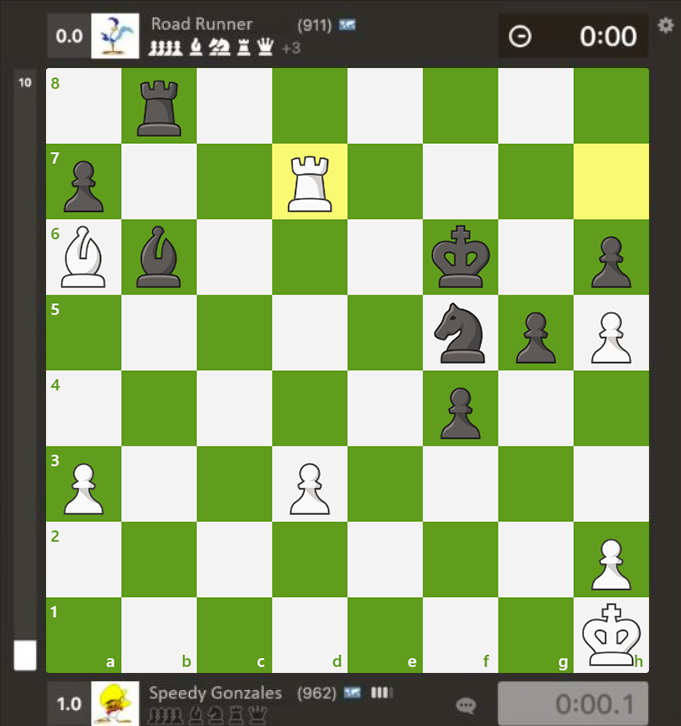
In fast-paced chess formats like blitz or bullet, time management is critical. Likewise, managing our time in life is one of the most difficult yet important skills to master. Procrastination or perfectionism can cost us opportunities, just like time mismanagement in chess can lead to poor moves made in a rush.
6. The Drive to Improve

Both in life and in chess, we strive to better ourselves. Whether it’s seeking a higher ELO rating in chess or advancing in our careers, self-improvement drives us forward. However, it’s important not to let this desire become an unhealthy obsession. Enjoyment should always be part of the process—both on the chessboard and in life.
7. Ethics and Integrity

Chess has a long tradition of respect for the rules and for one’s opponents. Similarly, living with integrity is essential in life. Winning at all costs may offer temporary success, but earning respect through honesty and ethics is far more valuable.
8. Mistakes Are Costly and Remembered
In chess, a single blunder can overshadow an otherwise brilliant game. The same is true in life—our mistakes are often remembered longer than our successes. But instead of dwelling on these setbacks, we should view them as learning opportunities.
9. The Journey Is More Important Than the Destination

Many chess players believe that the true joy comes from winning. However, I think the process—learning, growing, and playing—is far more meaningful than the result. The same applies to life: enjoying the journey is what brings true fulfillment, not just achieving goals.
10. There’s Always a Chance to Start Over
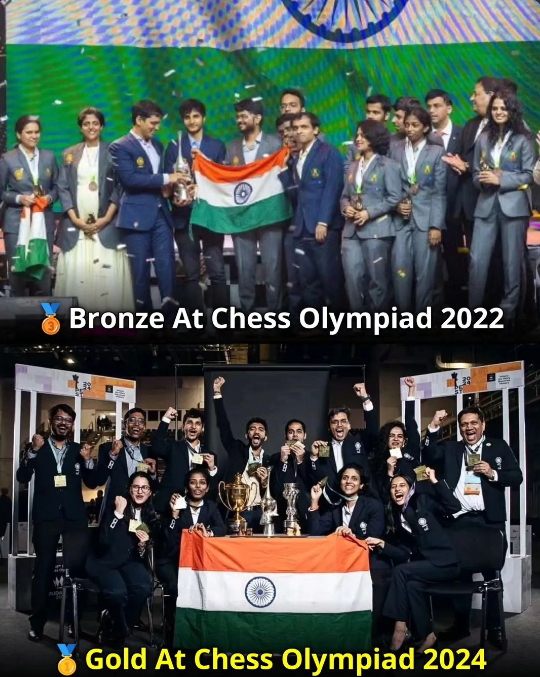
In chess, every loss is a learning opportunity, and every new game offers a fresh start. Life is no different. Setbacks are not the end, but rather stepping stones to growth. With every failure, we can learn, adapt, and try again.
Conclusion
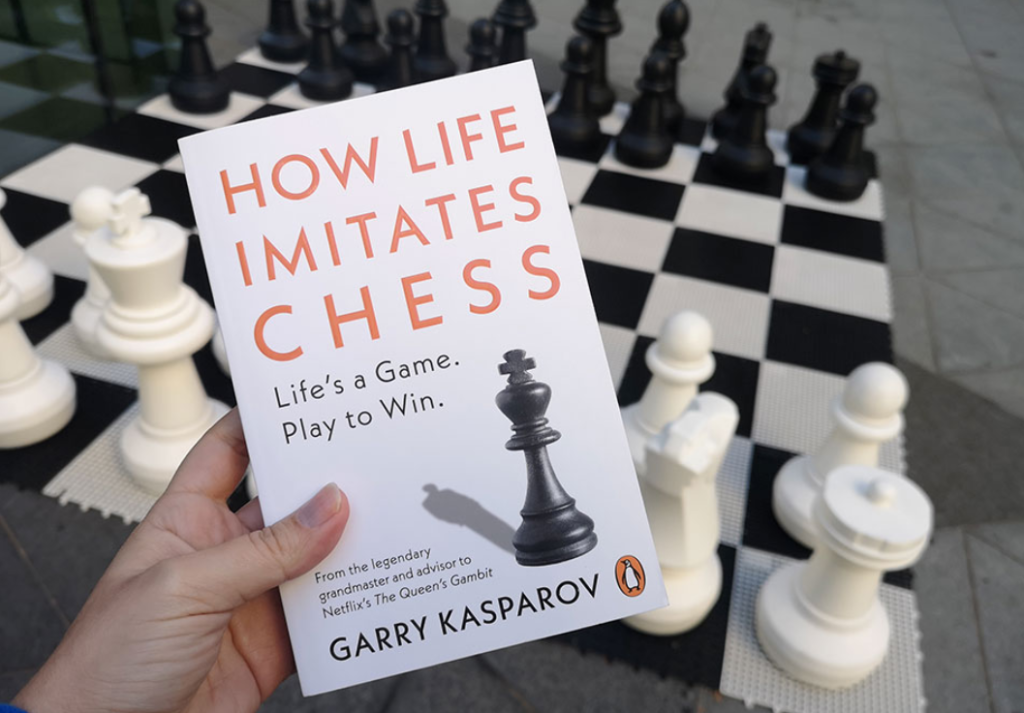
Chess and life are intricately connected. Writing this blog has deepened my understanding of this beautiful game and its similarities to the challenges we face every day. I hope this reflection has given you a new perspective on both chess and life.
Do you agree? Are there any other parallels between chess and life that I’ve missed? I’d love to hear your thoughts! Thank you for reading, and I hope this has inspired you to approach both chess and life with a fresh mindset.
What If AI Could Guess Your Chess Rating… Move by Move?
Feb 25th, 2026
When a chess game ends, all we usually see is a number.
Rating up. Rating down. That’s it.
But every serious chess player knows the truth — your strength reveals itself long before the final result. It shows in your opening choices, your patience in quiet positions, your time management under pressure, and how you react when things go wrong.

So here’s a fascinating question:
If an AI watched your game move by move, how quickly could it figure out how strong you are?
At Madras School of Chess, we love exploring how technology can deepen our understanding of improvement. And this idea opens an exciting new chapter in chess learning.
Every Move Tells a Story
A single move is not random.
It carries information.

- How you evaluate a position
- What squares you value
- Whether you prioritize safety or initiative
- How you respond to threats
- How accurately you calculate
Now imagine feeding millions of chess games into an intelligent system and teaching it to recognize patterns behind decisions. Instead of judging only the final result, the AI studies each move as evidence of strength.
As the game progresses, the system gradually sharpens its estimate of a player’s rating — almost like a commentator who becomes more confident about a player’s level with every decision.
Early moves? Uncertain.
Midgame choices? Clearer signals.
Endgame precision? Strong confirmation.
Strength becomes visible before checkmate.
From Whole Games to Individual Decisions
Traditional rating systems measure outcomes.
But modern AI can measure decision quality.

By breaking games into half-moves (every single decision), models can analyze:
- Material balance changes
- King safety awareness
- Control of key squares
- Tactical accuracy
- Positional consistency
Instead of asking, “Who won?”
The deeper question becomes:
“What does this move reveal about the player behind it?”
And that’s where things become powerful for training.
Seeing the Board Through AI Eyes
To a human, a chessboard is one 8×8 grid.

To an AI model, it can be visualized as dozens of information layers:
- Where each piece stands
- Which squares are controlled
- Which lines are open
- How the last move changed the position
- Whether the balance shifted strategically
Each move creates a “shockwave” in the position.
Strong players create constructive shockwaves.
Weaker moves create structural weaknesses.
Over time, patterns emerge.
Beyond the Board: Time and Decision Pressure
Board position alone tells a lot — but not everything.
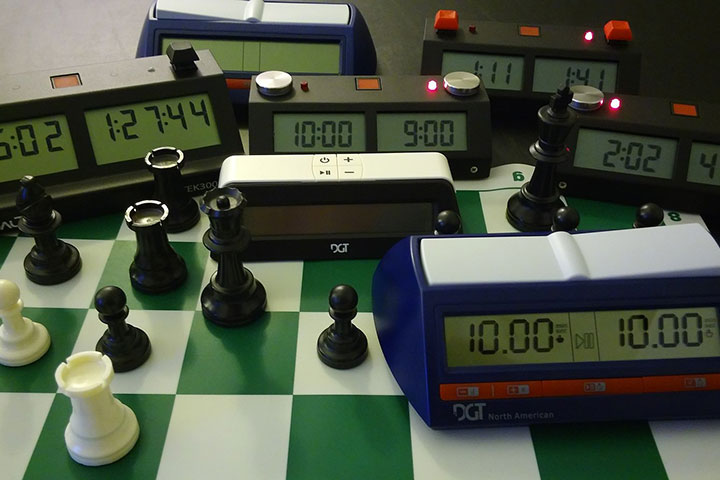
Time management adds another dimension:
- Do you rush critical moments?
- Do you spend too long on simple moves?
- Do your mistakes increase in time trouble?
Future AI-driven tools may combine position analysis with clock usage to understand not just how strong you are, but how you perform under stress.
That insight could transform chess coaching.
Why This Matters for Chess Improvement
At Madras School of Chess, we believe improvement is not about memorizing moves — it’s about understanding patterns.
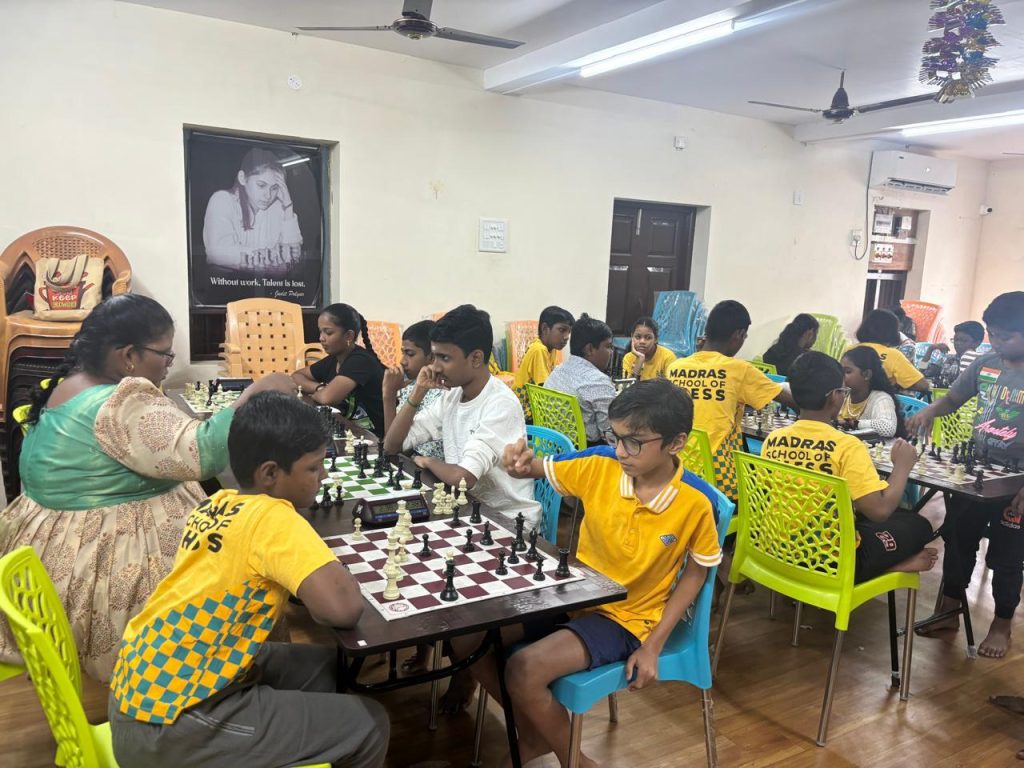
Imagine training tools that could tell you:
- “Your positional decisions are stronger than your rating.”
- “You lose accuracy only in tactical complications.”
- “Your opening play reflects higher strength than your endgames.”
- “Under time pressure, your rating effectively drops by 200 points.”
That level of feedback changes everything.
Chess becomes not just a game of results, but a mirror of decision-making quality.
Chess as a Laboratory for Human Thinking
Chess has always been more than a game.

It is:
- Pattern recognition
- Risk evaluation
- Strategic planning
- Emotional control
- Adaptive thinking
By studying how strength reveals itself move by move, AI isn’t just analyzing chess — it is studying human decision-making.
And that opens possibilities far beyond the board.
The Future of Training
The long-term goal isn’t to replace human coaching.

It’s to enhance it.
Imagine:
- Real-time strength tracking during practice games
- Personalized feedback based on decision patterns
- Visual strength graphs that evolve as you play
- Smarter training plans tailored to your unique weaknesses
The future of chess improvement is not just about playing stronger moves.
It’s about understanding why you play them — and what they say about you.
At Madras School of Chess
We constantly explore innovative ideas that push our students beyond conventional learning.
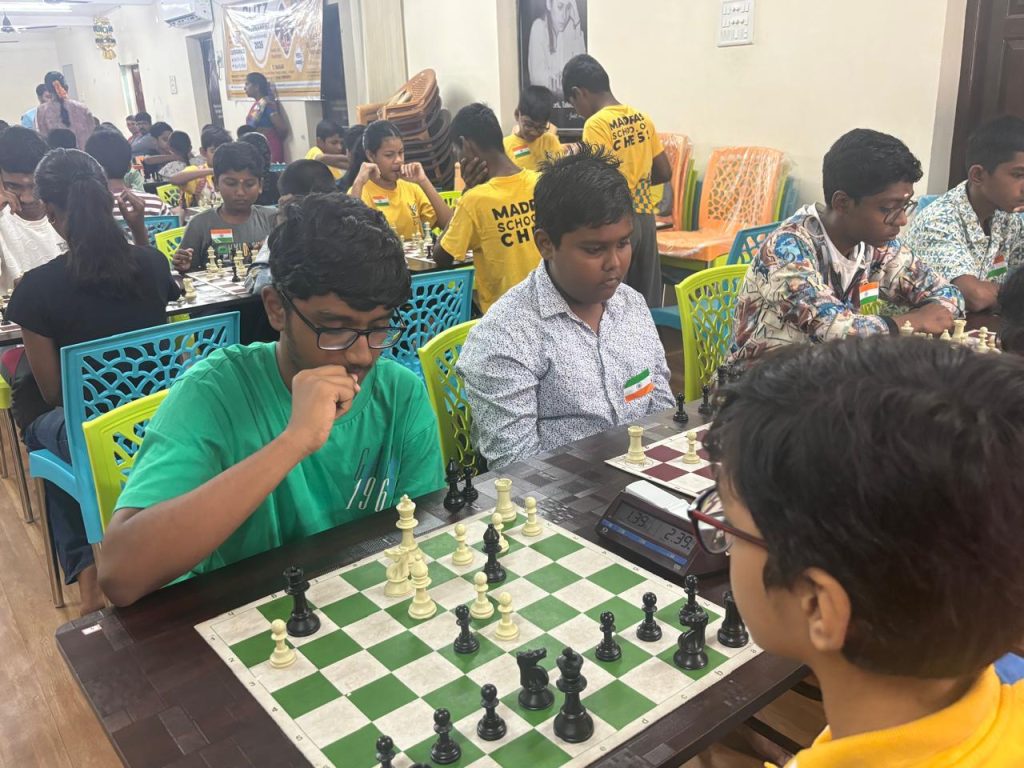
Because in chess, strength isn’t just revealed at checkmate.
It’s revealed move by move.
And the earlier you recognize it,
the faster you grow.
Ready to Level Up Your Game?
𝐉𝐨𝐢𝐧 𝐌𝐚𝐝𝐫𝐚𝐬 𝐒𝐜𝐡𝐨𝐨𝐥 𝐨𝐟 𝐂𝐡𝐞𝐬𝐬 𝐭𝐨 𝐝𝐞𝐟𝐞𝐚𝐭 𝐲𝐨𝐮𝐫 𝐨𝐩𝐩𝐨𝐧𝐞𝐧𝐭 𝐰𝐢𝐭𝐡 𝐛𝐫𝐢𝐥𝐥𝐢𝐚𝐧𝐜𝐞 𝐚𝐧𝐝 𝐩𝐫𝐞𝐜𝐢𝐬𝐢𝐨𝐧!
📍 Locations: T.Nagar | Anna Nagar | Mandaveli | Online
📞 Call: +91 98404 03376
🌐 Visit: www.madrasschoolofchess.com
📲 Follow us: @madrasschoolofchess
What Happens When a Child Learns to Think Before Every Move?
Feb 09th, 2026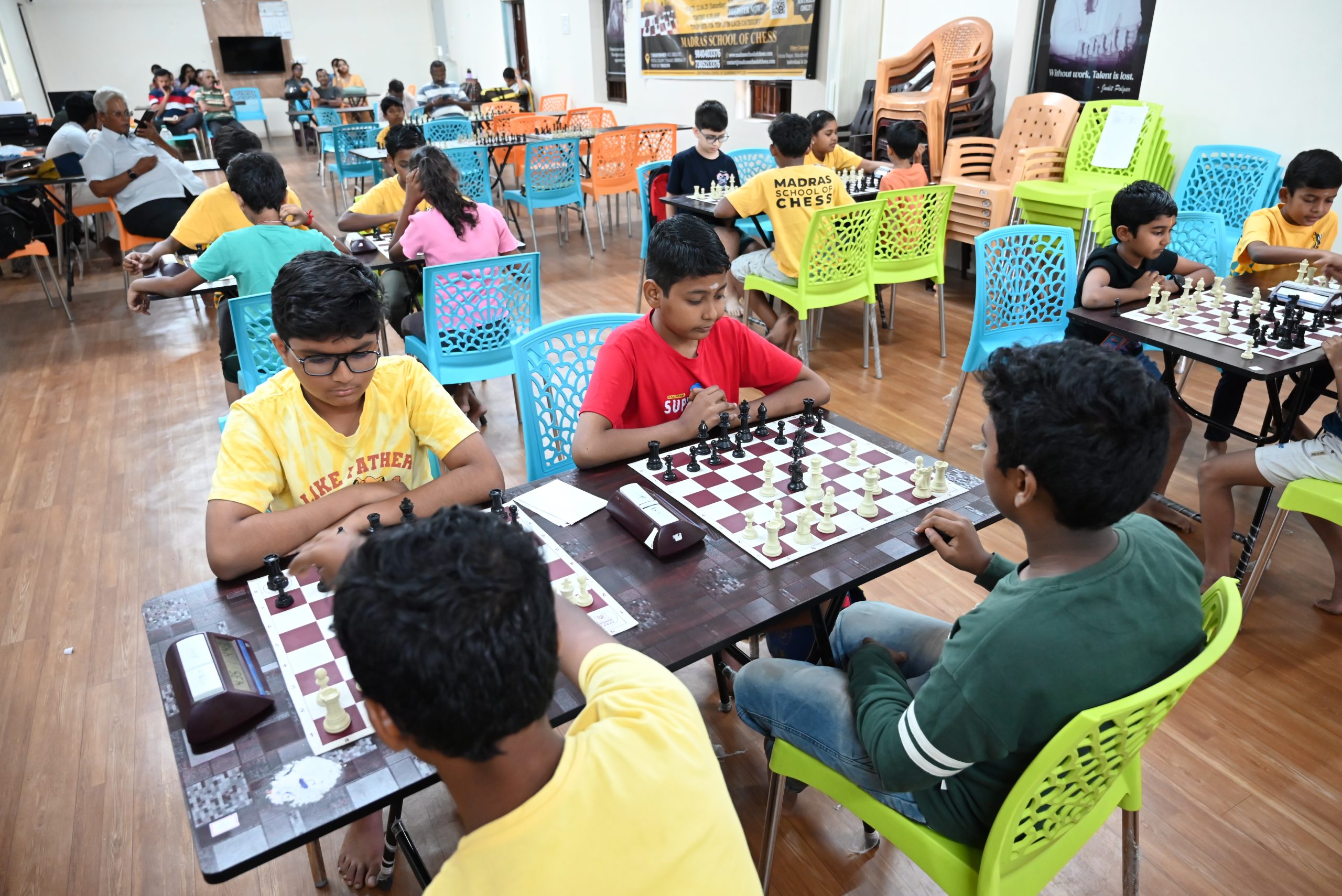
Chess is often seen as a game of black and white squares, quiet halls, and intense concentration. But for the students of Madras School of Chess, it is much more than that. It is a journey of growth, confidence, discipline, and self-belief—one move at a time.
At MSC, chess is not taught as a shortcut to trophies. It is taught as a thinking language—one that helps young minds understand decision-making, responsibility, and resilience both on and off the board.
Where Every Move Builds Character
Every student who walks into Madras School of Chess starts with a simple lesson:
Every move has a consequence.
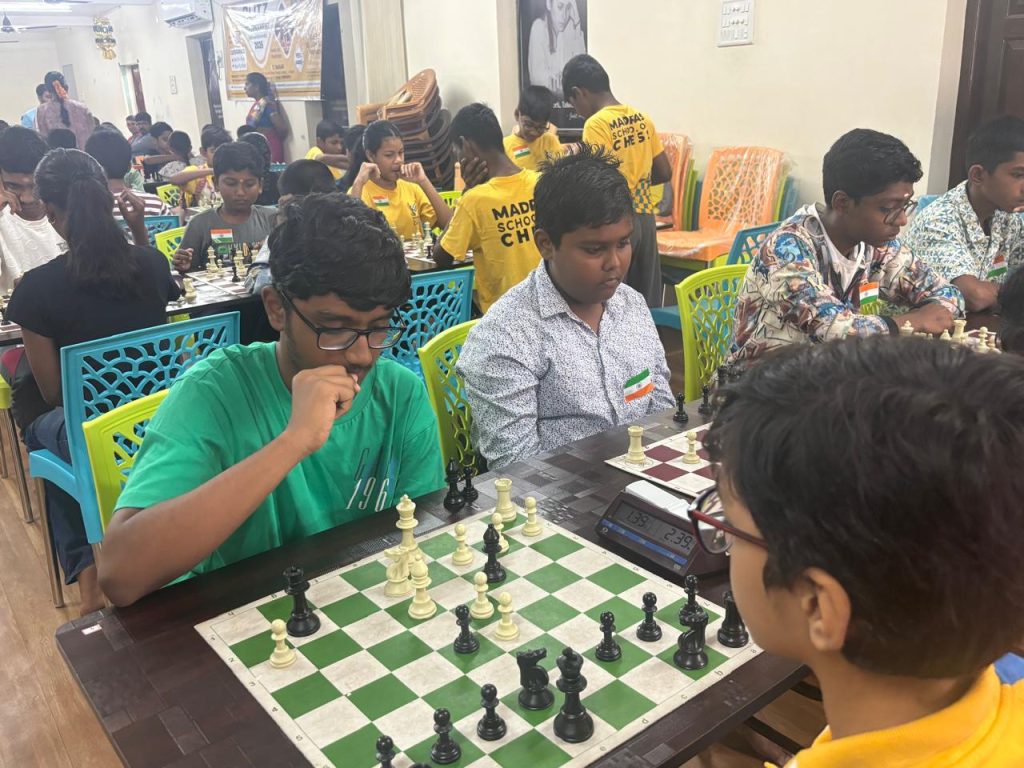
This principle goes far beyond chess pieces. Students learn to pause, evaluate, and choose wisely—skills that naturally translate into academics, relationships, and life decisions.
Through structured training sessions, students are encouraged to:
- Think independently instead of memorizing moves
- Take ownership of their decisions
- Learn from mistakes without fear
Learning to Lose, Learning to Rise
One of the most powerful lessons chess teaches is how to handle defeat.
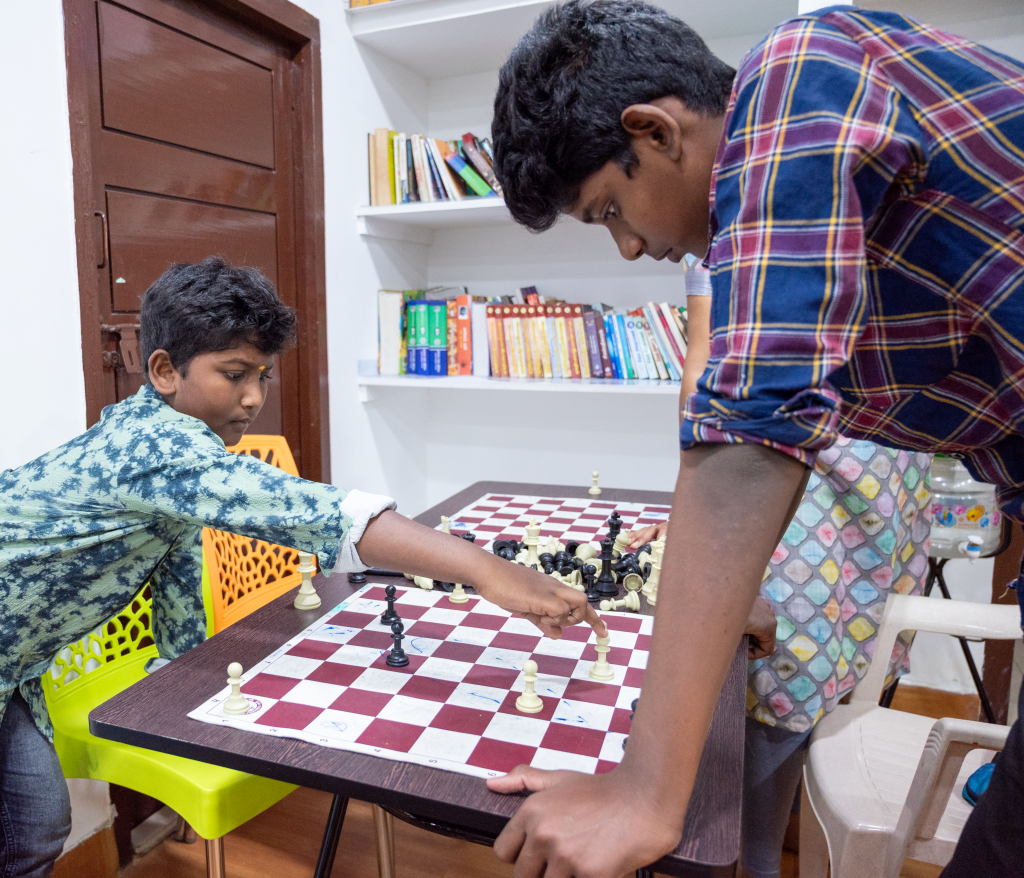
At MSC, losing a game is never treated as failure. Instead, it becomes a classroom. Students analyze their games, understand where they went wrong, and come back stronger. This process builds emotional strength and patience—qualities rarely taught in traditional classrooms.
Many parents notice this transformation early:
- Improved focus and calmness
- Better emotional control during exams or competitions
- Increased confidence when facing challenges
From Curiosity to Confidence
Most students begin their chess journey with curiosity. Over time, curiosity turns into confidence.
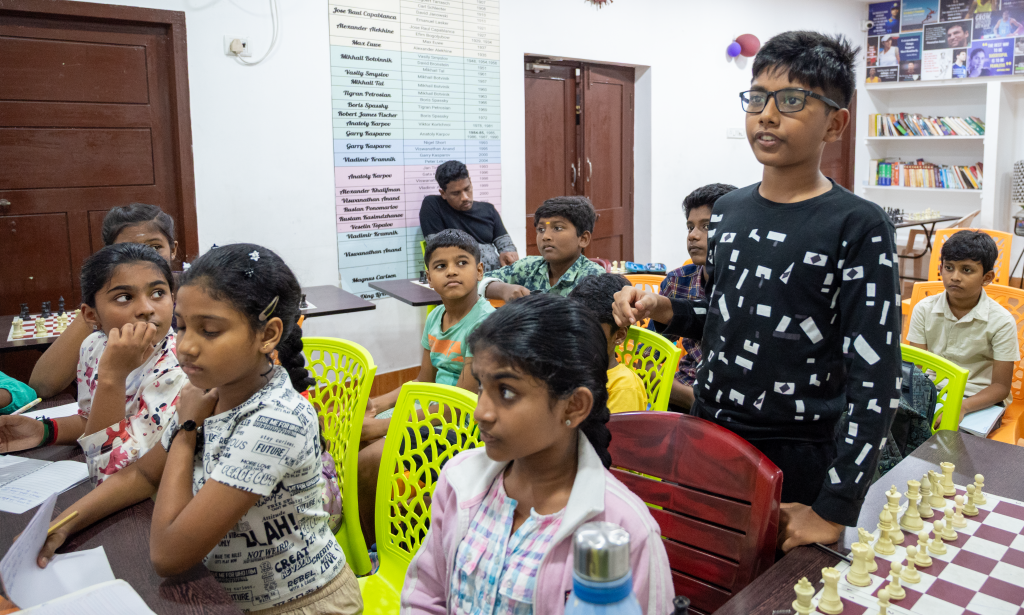
As students learn openings, tactics, and endgames, something deeper happens—they begin to trust their thinking. Solving a tough position or spotting a hidden tactic gives them the courage to believe in their abilities.
This confidence reflects in:
- Public speaking and communication
- Classroom participation
- Willingness to take healthy risks
Chess becomes a mirror that shows them what they are capable of.
Mentorship That Makes the Difference
Behind every growing student is a mentor who believes in them.
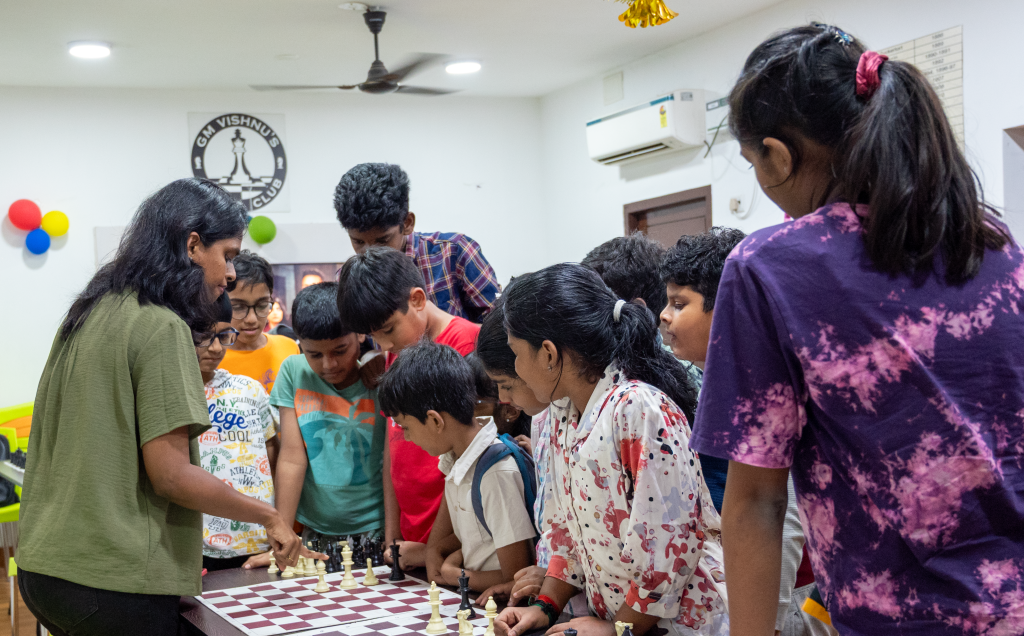
At Madras School of Chess, coaching is not limited to technical training. Coaches guide students through mindset, discipline, and tournament preparation. They understand that every child learns differently and grows at their own pace.
This personalized mentorship ensures that students don’t just improve their ratings—they grow as individuals.
A Community That Celebrates Growth
MSC is not just an academy—it is a community.
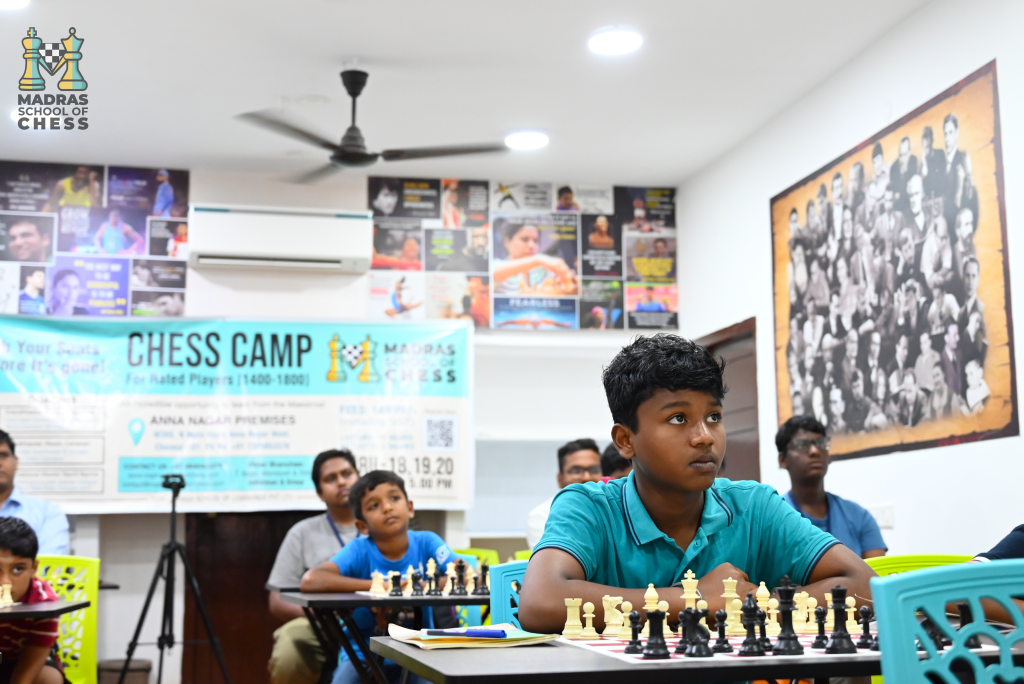
Students learn together, compete together, and celebrate each other’s progress. Whether it’s a first tournament, a well-fought draw, or a personal best performance, every milestone is valued.
This supportive environment motivates students to:
- Push beyond their comfort zones
- Stay consistent with practice
- Enjoy the learning process
Chess as a Life Skill, Not Just a Sport
In a world of fast screens and instant gratification, chess teaches patience.
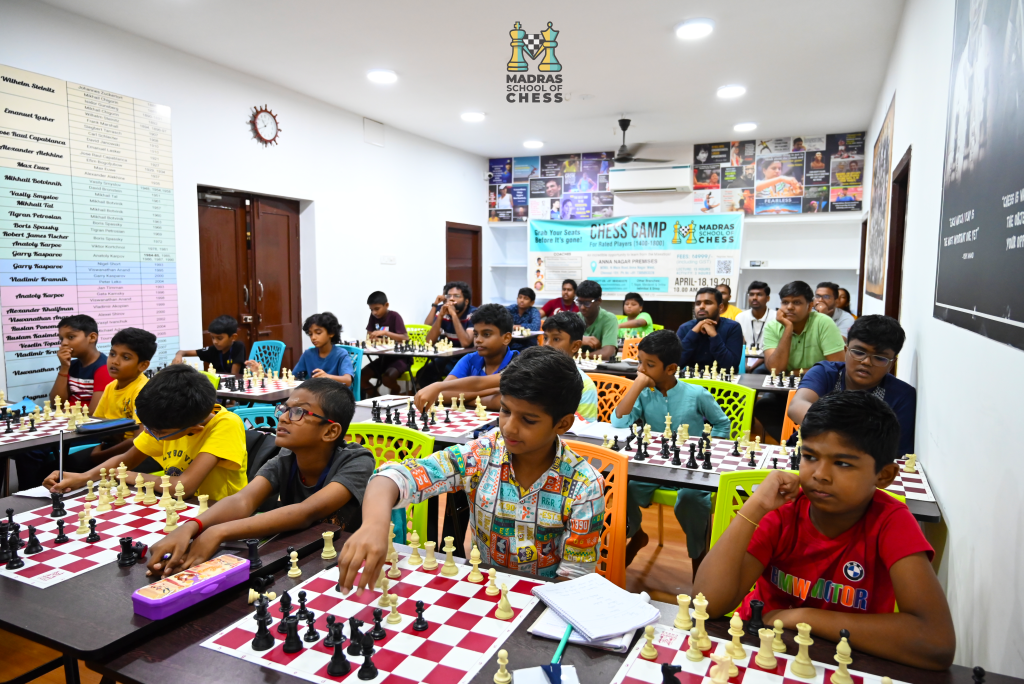
Students at MSC develop:
- Long-term thinking
- Problem-solving under pressure
- Time management
- Respect for opponents
These are life skills that stay with them long after the game ends.
The Journey Continues
Every student’s journey at Madras School of Chess is unique. Some dream of titles, some play for passion, and some simply enjoy the beauty of the game. No matter the goal, MSC ensures that every child leaves with a stronger mind and a confident heart.
Because at the end of the day, chess is not about winning every game—it’s about becoming better with every move.
Ready to Level Up Your Game?
𝐉𝐨𝐢𝐧 𝐌𝐚𝐝𝐫𝐚𝐬 𝐒𝐜𝐡𝐨𝐨𝐥 𝐨𝐟 𝐂𝐡𝐞𝐬𝐬 𝐭𝐨 𝐝𝐞𝐟𝐞𝐚𝐭 𝐲𝐨𝐮𝐫 𝐨𝐩𝐩𝐨𝐧𝐞𝐧𝐭 𝐰𝐢𝐭𝐡 𝐛𝐫𝐢𝐥𝐥𝐢𝐚𝐧𝐜𝐞 𝐚𝐧𝐝 𝐩𝐫𝐞𝐜𝐢𝐬𝐢𝐨𝐧!
📍 Locations: T.Nagar | Anna Nagar | Mandaveli | Online
📞 Call: +91 98404 03376
🌐 Visit: www.madrasschoolofchess.com
📲 Follow us: @madrasschoolofchess
The 88th Tata Steel Chess Championship 2026 — A Celebration of Mastery and Youthful Fire
Jan 27th, 2026
The chess world’s most iconic classical tournament — the Tata Steel Chess Championship 2026 — is once again captivating fans and players alike in Wijk aan Zee, Netherlands. Running from January 16 to February 1, 2026, this year’s edition marks the 88th anniversary of a tradition that has seen legends crowned and styles forged in the crucible of elite competition.
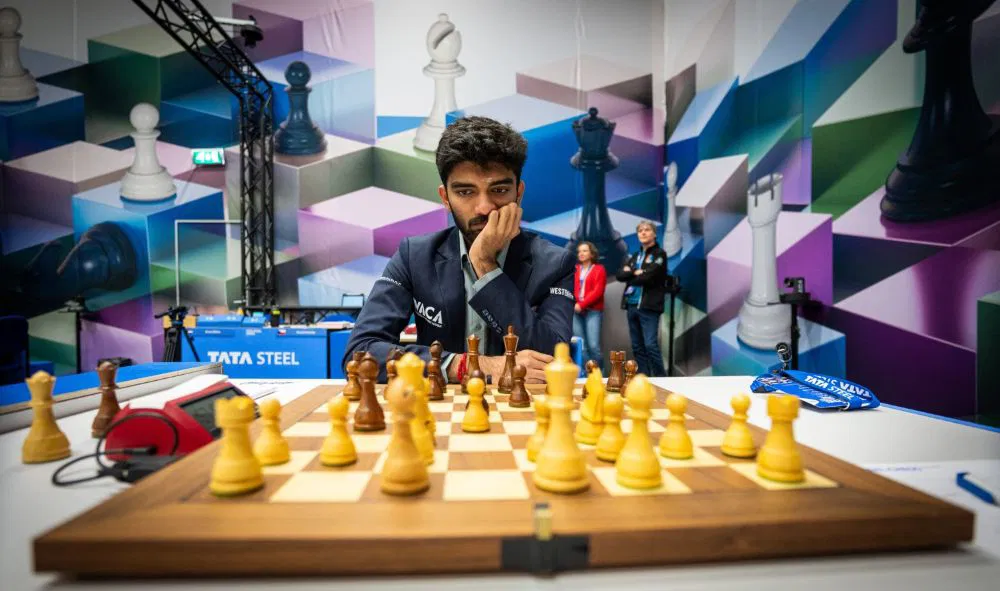
Often dubbed the “Wimbledon of Chess,” the Tata Steel Chess Masters brings together 14 of the world’s strongest Grandmasters in a round-robin classical format, where each game offers strategic battles stretching across hours of intense competition.
This year’s field is historically young — the youngest ever Masters lineup — reflecting a generational shift in top-level chess. With absentees like Carlsen, Nakamura, and Caruana, the spotlight gleams brightest on the rising stars of the game
A Tournament of Twists, Thrills, and Tactical Brilliance
From the early rounds, the tournament has been anything but predictable:
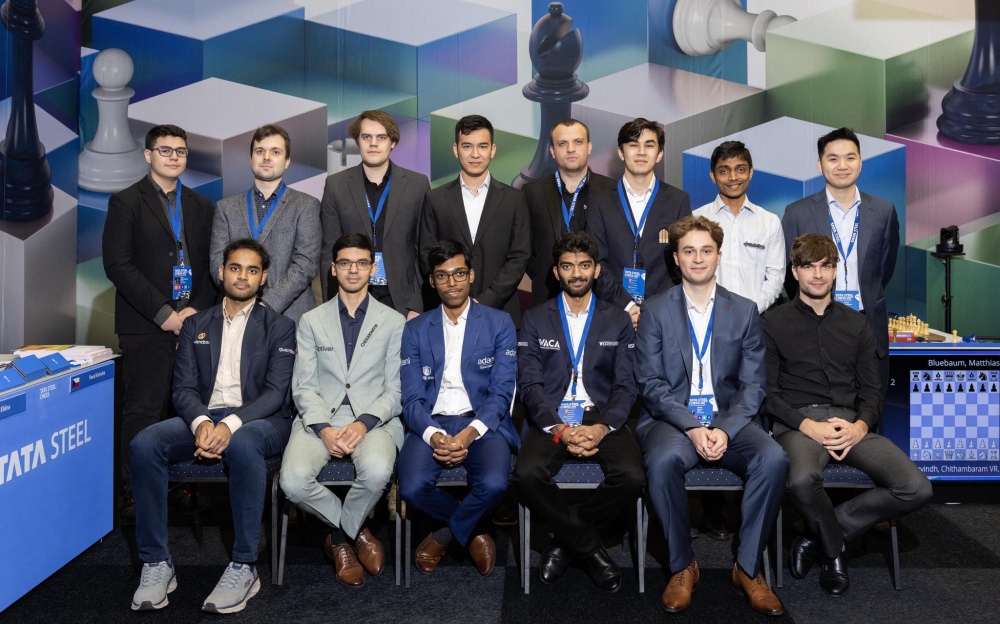
Leaders Emerged and Battles Intensified
- Uzbek prodigy Nodirbek Abdusattorov has led the standings for much of the event, showcasing fearless play and dynamic tactical vision.
- Close on his heels, Javokhir Sindarov and Hans Niemann have impressed with bold and creative games, sharing the lead at various stages.
Environmental Passion Meets Chess Spirit
Days before play began, Tata Steel Chess made headlines when environmental activists staged a protest outside the venue, underscoring modern society’s challenges — even in the calm world of chess.
Gukesh: World Champion on the Rise
At the heart of this year’s story is GM D Gukesh Dommaraju — the World Chess Champion and one of the brightest stars in modern chess. A player who mesmerized the globe with his World Championship triumph, Gukesh has brought his trademark creativity and resilience to Wijk aan Zee.
His journey in this edition has been a powerful mix of dramatic moments:
- After a challenging start, Gukesh notched up his first win in Round 5 with a gutsy exchange sacrifice that showed his deep strategic sense and tactical flair.
- Facing tough games against super-strong opponents like Nodirbek Abdusattorov and local favourite Anish Giri, he showed both vulnerability and character.
- In Round 8, Gukesh bounced back strongly with a convincing victory over Vladimir Fedoseev, demonstrating why he remains one of the most feared competitors on the circuit.
Every move from Gukesh echoes the journey of a prodigy who became a World Champion at a young age — a testament to years of hard work, passion, and unshakeable belief.
Behind the Champion: The Influence of GM Vishnu Prasanna
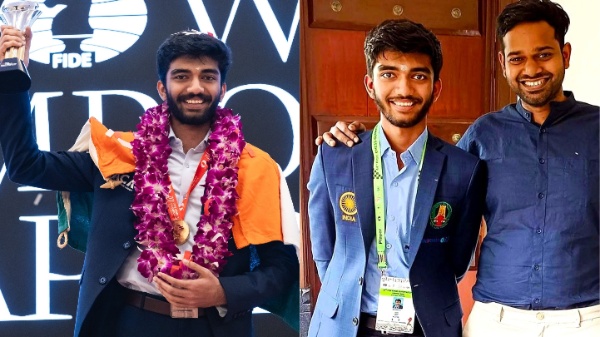
At Madras School of Chess, the story of Gukesh is especially close to our heart. The academy’s founder, GM Vishnu Prasanna, was one of Gukesh’s earliest coaches — a mentor who helped shape the now World Champion’s distinctive and dynamic playing style.
GM Vishnu Prasanna often describes Gukesh’s style as “harmonious chaos” — a blend of creative risk and precision that keeps opponents on their toes. This philosophy captures the heart of modern competitive chess: blend imagination with rigorous calculation, and never stop learning.
For every young player at our academy, this connection isn’t just inspiring — it’s proof that world-class talent grows from dedication, coaching, and a love for the game.
More Than Just a Tournament: Celebrating Chess Culture

While the Masters battles for classical prestige, the Rapid and Blitz events earlier in India set the tone for a chess season filled with energy:
- Indian GM Nihal Sarin emerged victorious in the Tata Steel Chess Rapid in Kolkata, drawing with legendary GM Viswanathan Anand to clinch the title.
- Across blitz formats, strong performances and tactical fireworks thrilled spectators and players alike, showcasing the depth of modern Indian chess talent.
These events are more than snapshots of competition — they are a celebration of chess as a living art form, where every game tells a story of risk, resilience, and creative thought.
What This Means for Aspiring Players
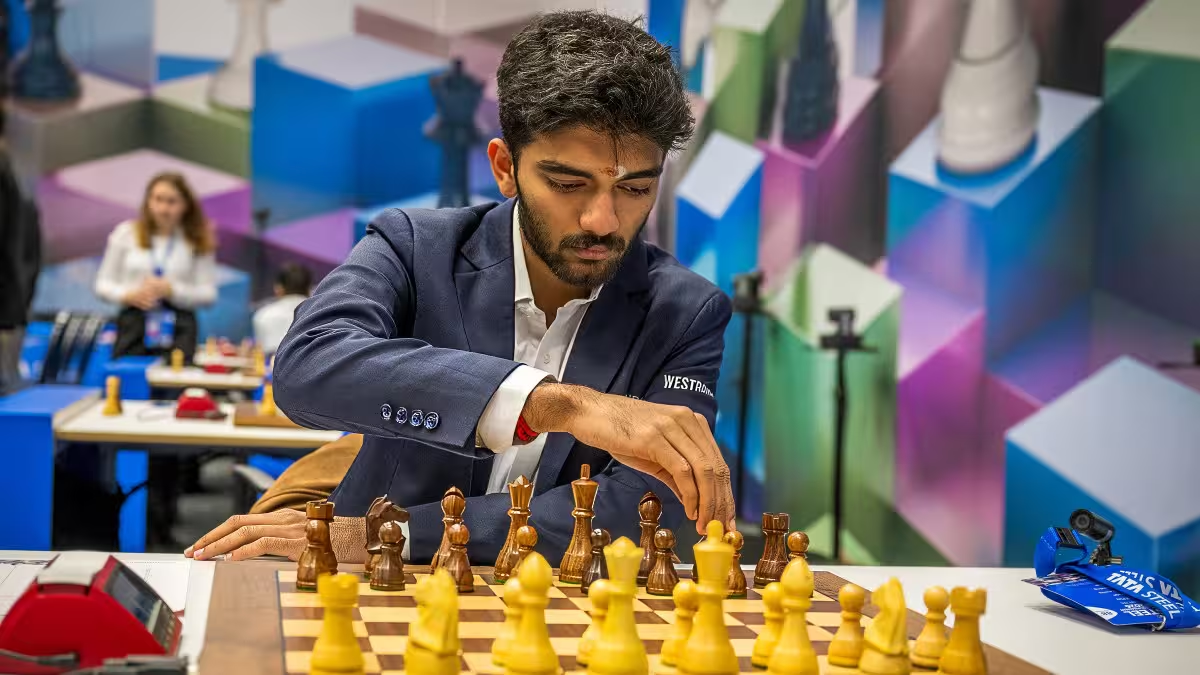
The Tata Steel Chess Championship 2026 stands as a beacon for players worldwide — especially the young minds training at academies like ours. What we learn from this event:
1. Courage in Complexity
Top players constantly navigate complexity with confidence — a reminder to embrace challenges rather than fear them.
2. Growth Through Adversity
Even champions like Gukesh face setbacks — but it’s the comeback, the adjustment, and the strategic growth that defines true greatness.
3. Value of Mentorship
Every grandmaster’s story carries the influence of mentors, coaches, and support systems — a core belief at Madras School of Chess, where every student’s journey is guided and uplifted.
Carrying the Legacy Forward

As the 2026 Tata Steel Chess Championship unfolds, we witness not only fierce battles on the board but the living evolution of chess itself: younger champions rise, federations celebrate diversity, cultures intersect, and ideas flourish.
From Wijk aan Zee to every chess club and academy worldwide, the message is clear — chess thrives where passion meets persistence.
For Madras School of Chess, this tournament isn’t just a headline — it’s an inspiration, a lesson, and a testament to what’s possible when talent is nurtured with dedication, creativity, and heart.
Let this chapter of Tata Steel Chess be a reminder to think boldly, play fearlessly, and always hunger for brilliance.
♟️ Ready to Level Up Your Game?
𝐉𝐨𝐢𝐧 𝐌𝐚𝐝𝐫𝐚𝐬 𝐒𝐜𝐡𝐨𝐨𝐥 𝐨𝐟 𝐂𝐡𝐞𝐬𝐬 𝐭𝐨 𝐝𝐞𝐟𝐞𝐚𝐭 𝐲𝐨𝐮𝐫 𝐨𝐩𝐩𝐨𝐧𝐞𝐧𝐭 𝐰𝐢𝐭𝐡 𝐛𝐫𝐢𝐥𝐥𝐢𝐚𝐧𝐜𝐞 𝐚𝐧𝐝 𝐩𝐫𝐞𝐜𝐢𝐬𝐢𝐨𝐧!
Locations: T.Nagar | Anna Nagar | Mandaveli | Online
Call: +91 98404 03376
Visit: www.madrasschoolofchess.com
Follow us: @madrasschoolofchess
New Year, New Opening: Reinvent Your Chess Repertoire in 2026
Jan 08th, 2026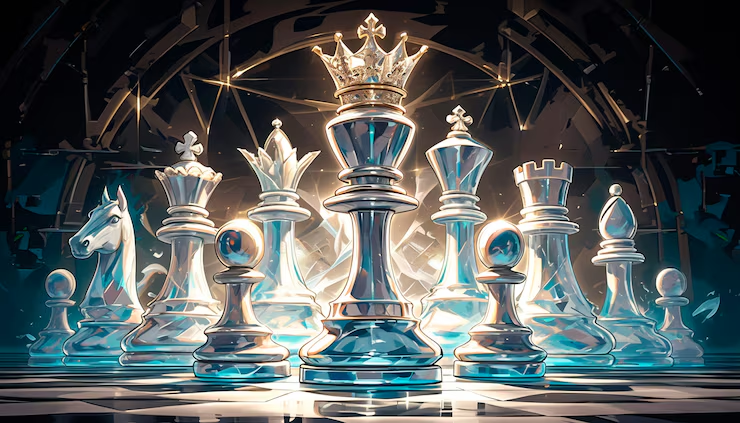
New Year, New Opening: It’s Time to Defeat Your Chess Nemesis
Every chess player has one.
That one opening that makes your heart sink the moment it appears on the board.
The one you secretly hope your opponent never plays—especially in an important game.
The one that has cost you points, confidence, and sometimes sleep.

We call it your opening nemesis.
As we step into 2026, this is the perfect moment to ask yourself an honest question: Am I going to keep suffering against the same opening… or finally take control?
The new year isn’t just about resolutions—it’s about strategic resets. And in chess, few resets are as powerful as reinventing your opening repertoire.
January: The Perfect Time for a Strategic Pivot
January 1st is universally known as a fresh start. In chess terms, it’s your chance to:

- Stop repeating the same opening mistakes
- Replace fear with preparation
- Turn discomfort into confidence
You have two powerful options when dealing with your opening nemesis:
- Avoid it intelligently – by adopting a fresh, modern repertoire that steers the game into positions you understand better
- Face it head-on – by deeply learning the ideas, structures, and plans that neutralize it completely
At Madras School of Chess, we believe real growth begins when preparation meets purpose.
That’s why our 2026 mantra is simple:
New Year. New Opening. New Confidence.
The Great 1.e4 Question: What Should Black Play in 2026?
To understand current opening trends, we looked at a fascinating community experiment conducted throughout December 2025—a series of online polls asking a classic question:
What is the best response to 1.e4 today?
The format was simple but revealing:
Popular defenses were matched in a knockout-style bracket, allowing players worldwide to vote for their preferred weapon.
Early Round Highlights
Some iconic battles emerged immediately:
- French Defense outlasted the hypermodern Pirc/Modern
- Sicilian Defense brushed past the Scandinavian
- Caro-Kann calmly neutralized Owen’s Defense
- 1…e5 stood firm against the provocative Alekhine’s Defense
The early rounds showed that while creativity is welcome, sound structure and reliability still matter deeply to today’s players.
A Surprise in the Semifinals
Most expected a classic final:
Sicilian Defense vs 1…e5
But chess evolution had other ideas.
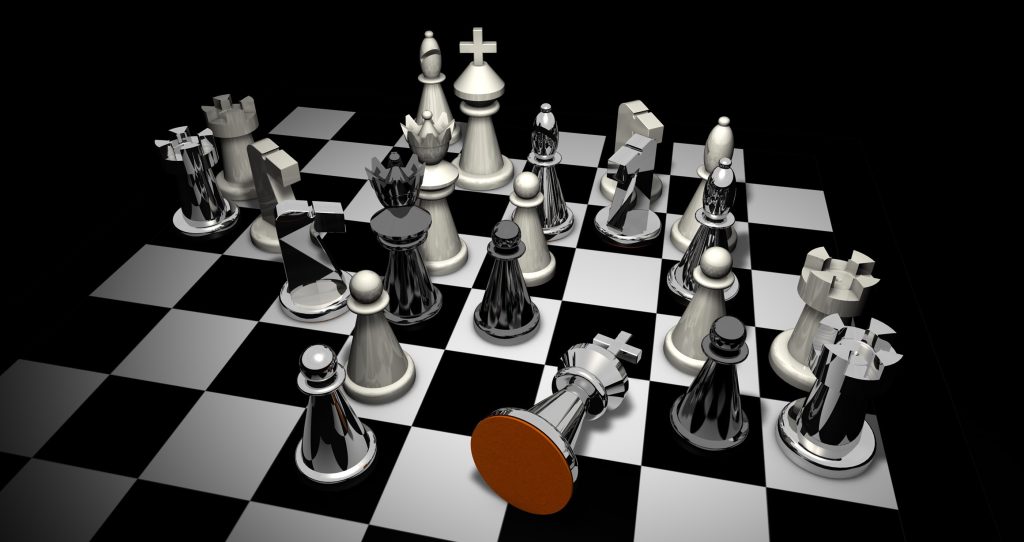
In a result that surprised many traditionalists, the Caro-Kann Defense eliminated 1…e5, signaling a shift in modern preference. Players increasingly value:
- Clear pawn structures
- Reduced theoretical overload
- Strong endgame transitions
The Caro-Kann’s rise reflects a generation that wants clarity before chaos.
The Grand Final: Sicilian vs Caro-Kann
The final showdown took place on December 25th, 2025.
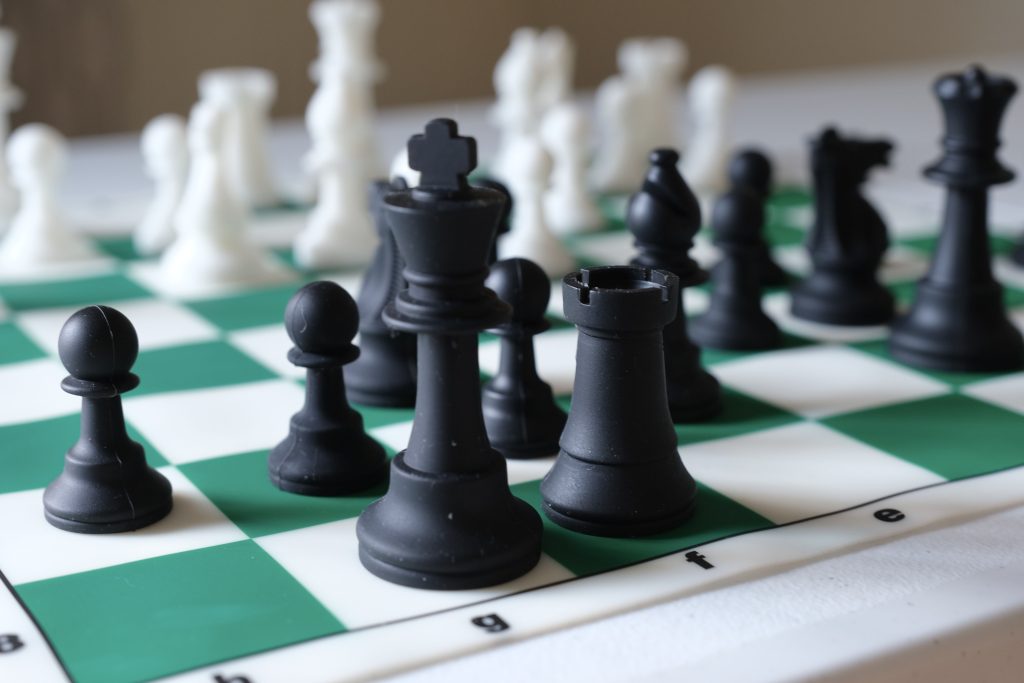
Interestingly, both finalists revolved around the c-pawn, but with entirely different philosophies:
- Caro-Kann: Control first, safety first
- Sicilian: Counterattack immediately, fight for imbalance
In the end, the Sicilian Defense emerged victorious—once again proving why it remains the weapon of choice for elite and ambitious players.
As one strong chess enthusiast perfectly summarized:
“A small, cautious c-pawn move can’t compare to confidently grabbing space and challenging White’s center from move one.”
What This Means for Chess Students in 2026
This debate highlights a crucial lesson for every chess learner:
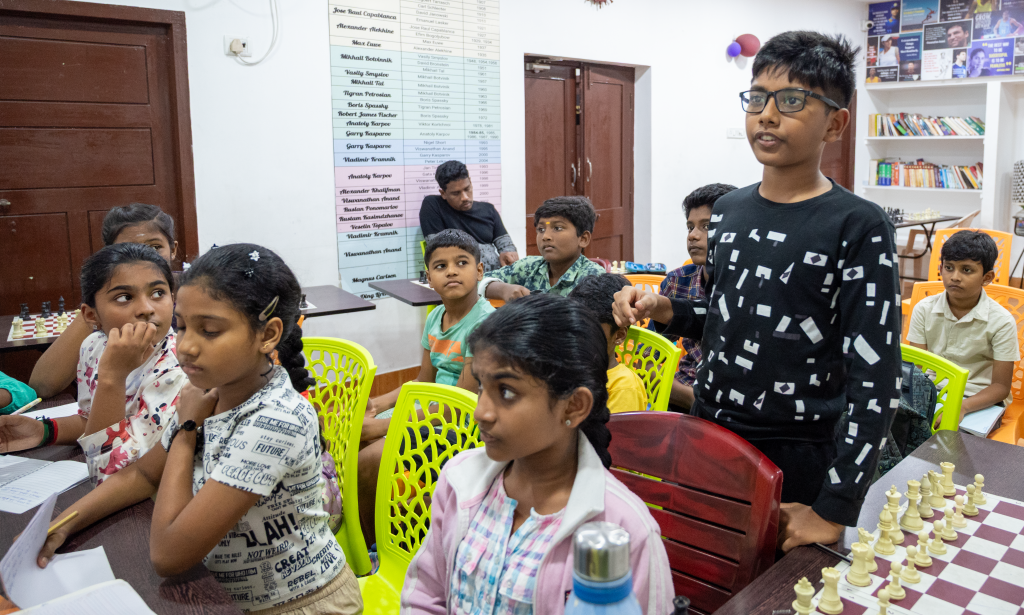
🔹 There is no ‘one best opening’—only the best opening for you
Your choice should depend on:
- Your playing style
- Your tournament goals
- Your willingness to study and practice
At Madras School of Chess, we guide students to:
- Understand ideas, not just moves
- Learn structures that repeat across openings
- Build repertoires that grow with their strength
Reinvent Your Game with Madras School of Chess
Whether your goal for 2026 is to:
- Finally understand the Sicilian
- Master a solid defense like the Caro-Kann
- Build a lifelong opening repertoire
- Or eliminate your personal opening nemesis once and for all
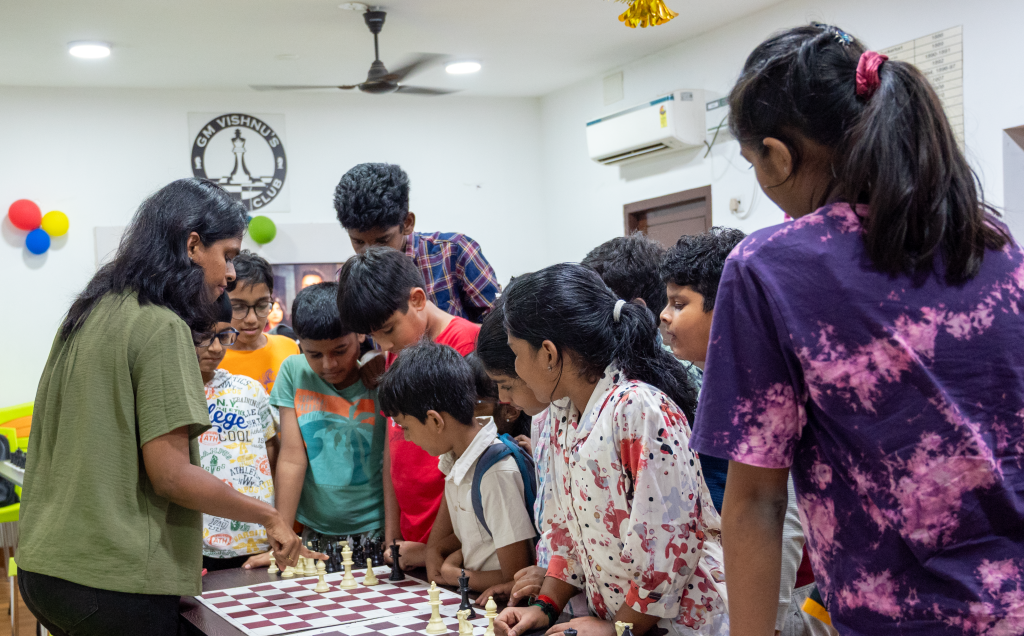
This is the year to do it properly.
With structured training, modern theory, and concept-driven learning, we help students turn past frustrations into future strengths.
2026 Isn’t About Playing More Games.
It’s About Playing Better Positions.
New Year. New Opening.
Let’s build a stronger chess future—one move at a time.
♟️ Ready to Level Up Your Game?
𝐉𝐨𝐢𝐧 𝐌𝐚𝐝𝐫𝐚𝐬 𝐒𝐜𝐡𝐨𝐨𝐥 𝐨𝐟 𝐂𝐡𝐞𝐬𝐬 𝐭𝐨 𝐝𝐞𝐟𝐞𝐚𝐭 𝐲𝐨𝐮𝐫 𝐨𝐩𝐩𝐨𝐧𝐞𝐧𝐭 𝐰𝐢𝐭𝐡 𝐛𝐫𝐢𝐥𝐥𝐢𝐚𝐧𝐜𝐞 𝐚𝐧𝐝 𝐩𝐫𝐞𝐜𝐢𝐬𝐢𝐨𝐧!
📍 Locations: T.Nagar | Anna Nagar | Mandaveli | Online
📞 Call: +91 98404 03376
🌐 Visit: www.madrasschoolofchess.com
📲 Follow us: @madrasschoolofchess
Beyond the Board: How Holistic Chess Education Shapes Thinkers, Not Just Players
Dec 24th, 2025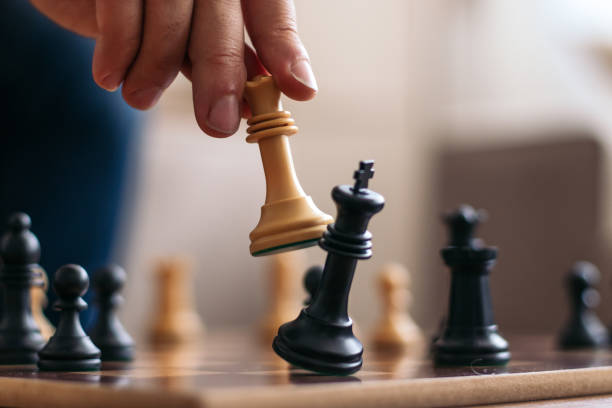
Chess is often seen as a game of moves, openings, and tactics. But at its core, chess is a powerful tool for shaping the mind. True chess education goes far beyond memorizing strategies — it builds critical thinking, problem-solving ability, patience, and character.
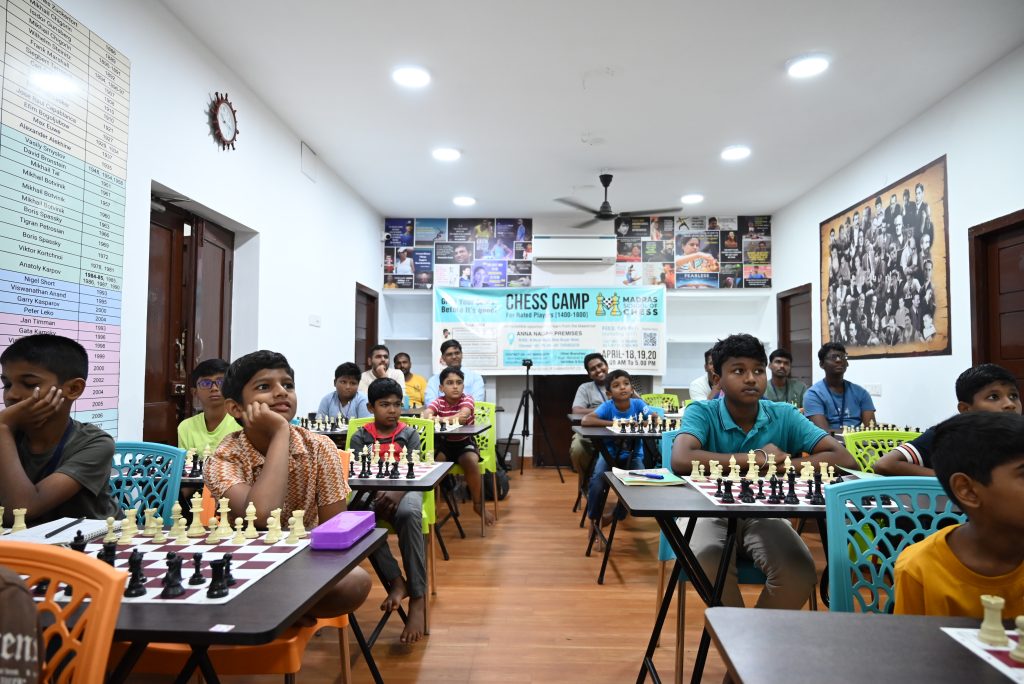
At Madras School of Chess, we believe that learning chess should help students grow not just as players, but as thinkers and decision-makers in life.
Chess as a Thinking Skill, Not Just a Game
Every chess position asks a question:
What is the best decision right now?
Students must analyze, evaluate, predict consequences, and choose wisely — skills that mirror real-life decision-making. Through guided training, students learn how to:
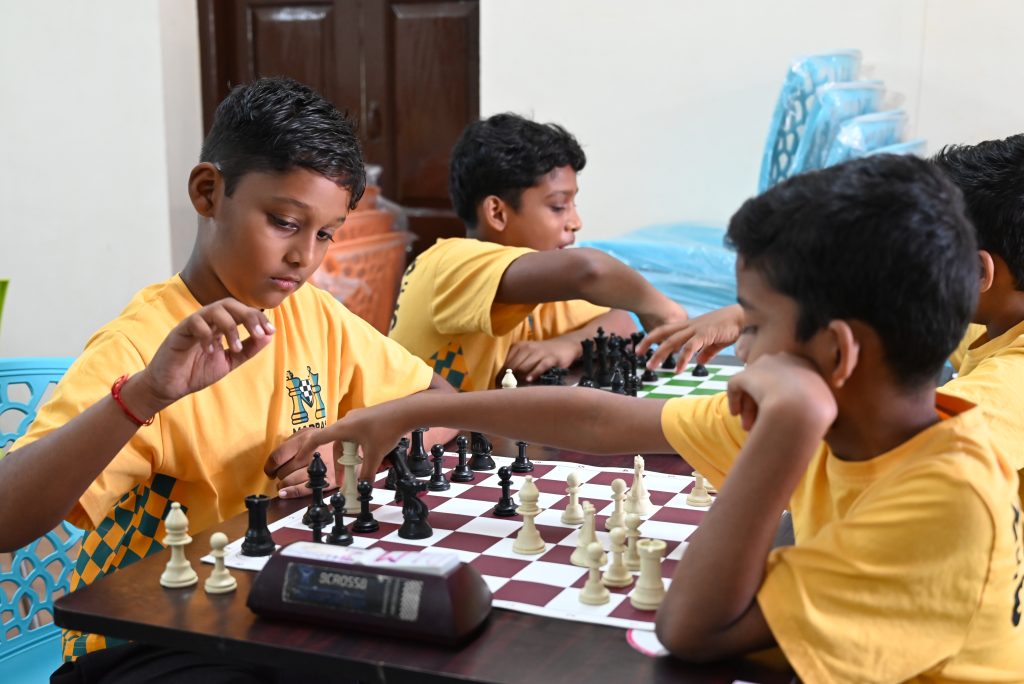
- Break complex problems into simple ideas
- Evaluate multiple options before acting
- Think ahead and manage risks
- Learn from mistakes without fear
These skills naturally transfer to academics, sports, and everyday challenges.
Learning the “Why” Behind Every Move
Many players know what move to play — fewer understand why.
Our approach focuses on concept clarity. Instead of rote learning, students explore:
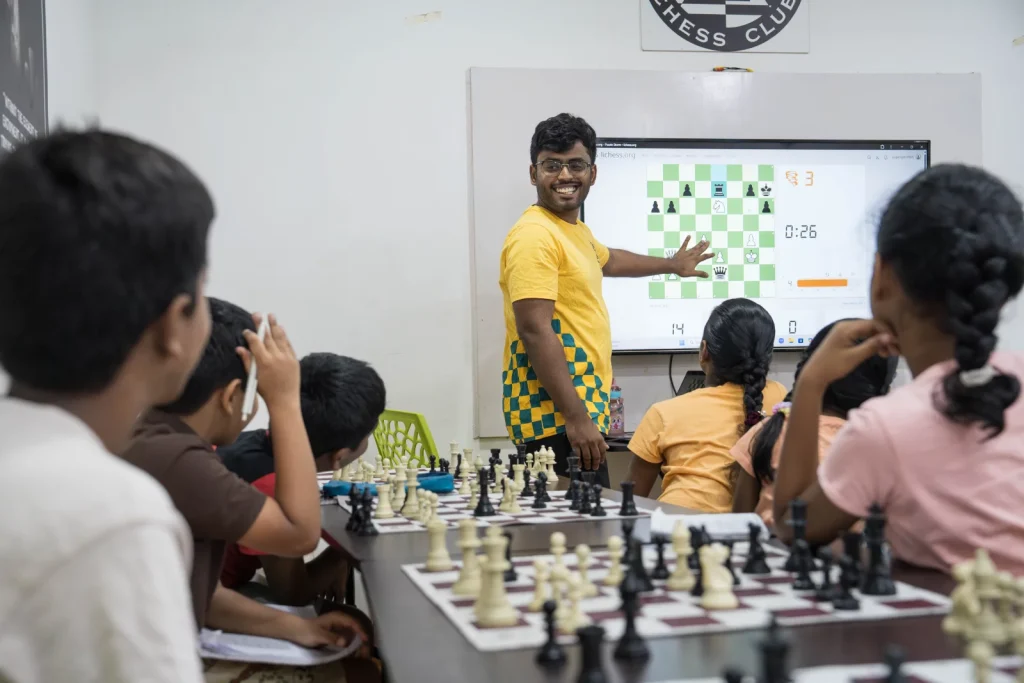
- Why certain openings work
- How middle-game plans are built
- What makes an endgame winning or drawable
By understanding ideas rather than memorizing moves, students become adaptable thinkers who can handle unfamiliar positions with confidence.
Theory Meets Practice — The Right Balance
Chess theory gives structure, but practice gives understanding.
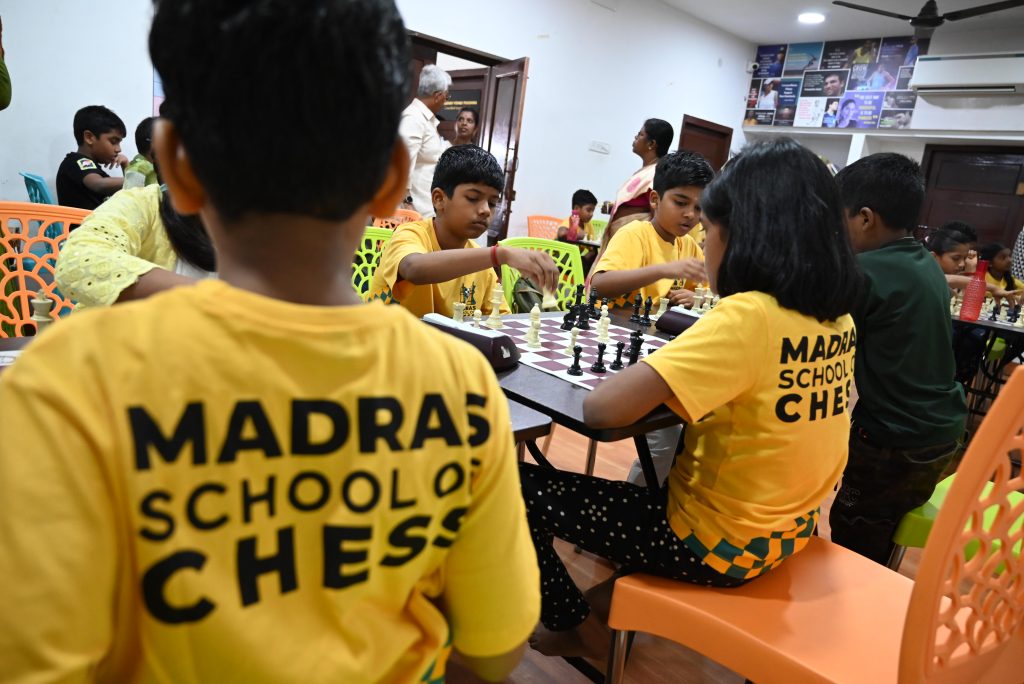
Our curriculum blends:
- Structured lessons on chess principles
- Regular practice games
- Position-based exercises
- Real-time analysis and feedback
This integration ensures that students don’t just learn concepts — they apply them, make mistakes, correct them, and grow stronger with every game.
Building Character Through the Game
Chess is one of the few games where there is no one to blame but yourself. This teaches powerful life values:
- Patience during long games
- Discipline in preparation and practice
- Resilience after losses
- Humility in victory
Students learn to handle both success and setbacks with maturity, a trait that benefits them far beyond the chessboard.
Making Learning Enjoyable and Stress-Free
Enjoyment is essential for growth.
By using puzzles, interactive sessions, challenges, and friendly competition, students stay motivated and curious. When learning is enjoyable, improvement happens naturally — without pressure or burnout.
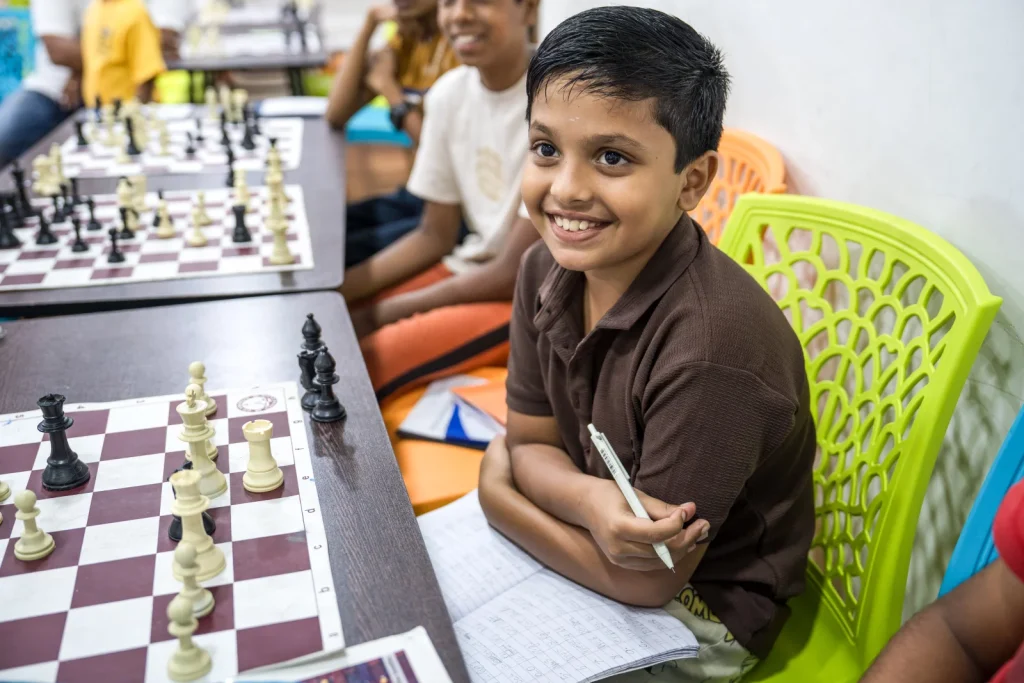
Chess becomes something students look forward to, not something they are forced to do.
Preparing Minds for the Future
In a fast-changing world, the ability to think clearly, adapt quickly, and solve problems creatively matters more than ever. Chess nurtures exactly these skills.
At Madras School of Chess, our goal is simple yet powerful:
To create confident thinkers, smart decision-makers, and well-rounded individuals — using chess as the medium.
Because when students learn how to think, success follows everywhere.
Ready to Grow with Us?
Got a project or idea? Scale your business with Webdzo Technologies! From cutting-edge website development to digital solutions tailored for success, we help turn your vision into reality.
📞 Call: +91 99522 89956
🌐 Visit: www.webdzo.com
Let’s build something amazing together!
India Shines at the Asian Youth Rapid Chess Championship 2025 — A Proud Moment for Madras School of Chess
Dec 10th, 2025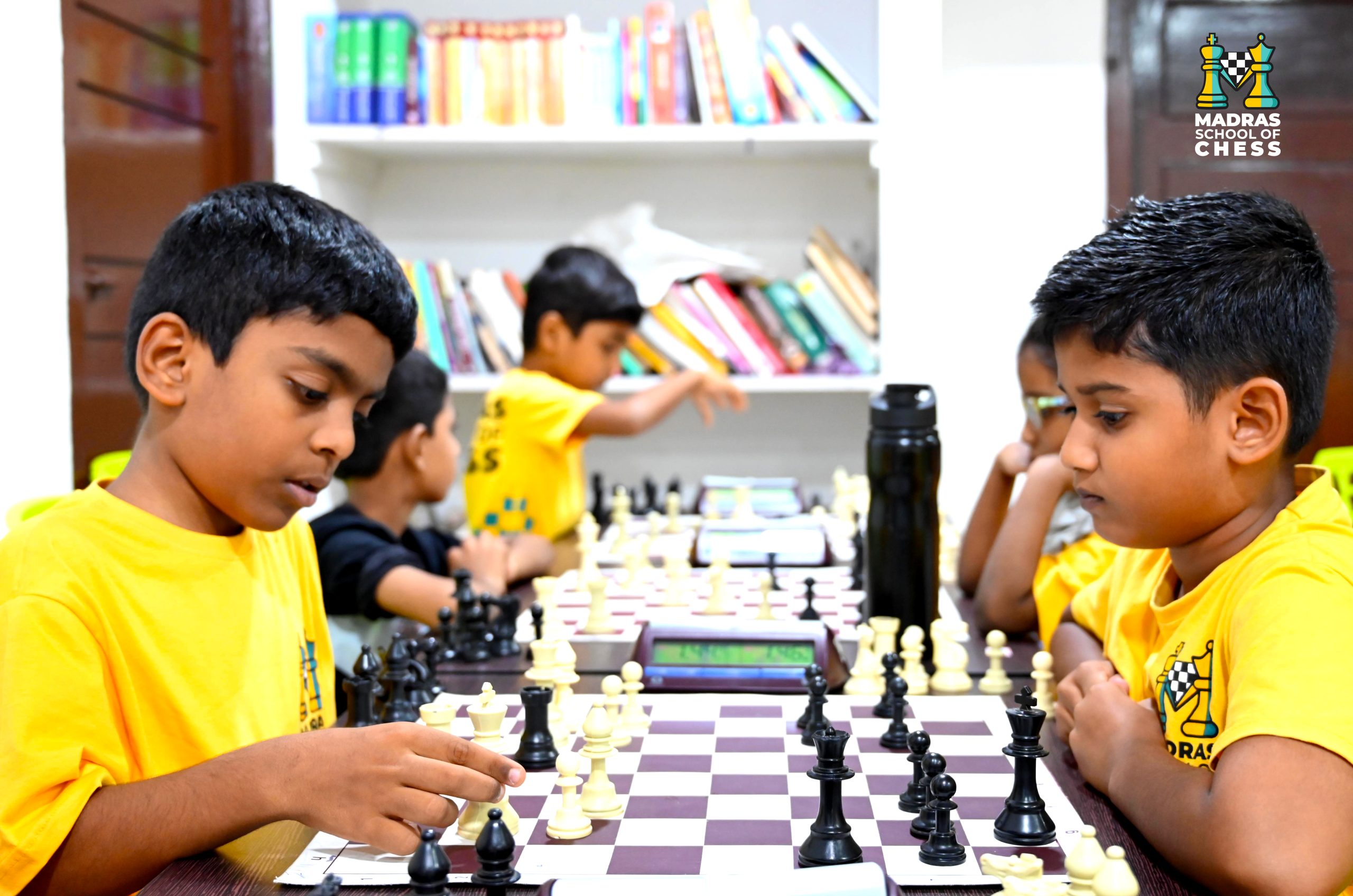
India’s Rising Stars Dominate Asia
The Asian Youth Rapid Chess Championship 2025 was nothing short of spectacular for India. Bringing together the brightest young minds from across the continent, the event tested not only speed and accuracy but also maturity, resilience, and deep understanding of the game.
In this fiercely competitive rapid format (15 minutes + 5-second increment), our Indian contingent displayed clarity of thought far beyond their age, proving once again why India continues to rise as a global chess powerhouse.
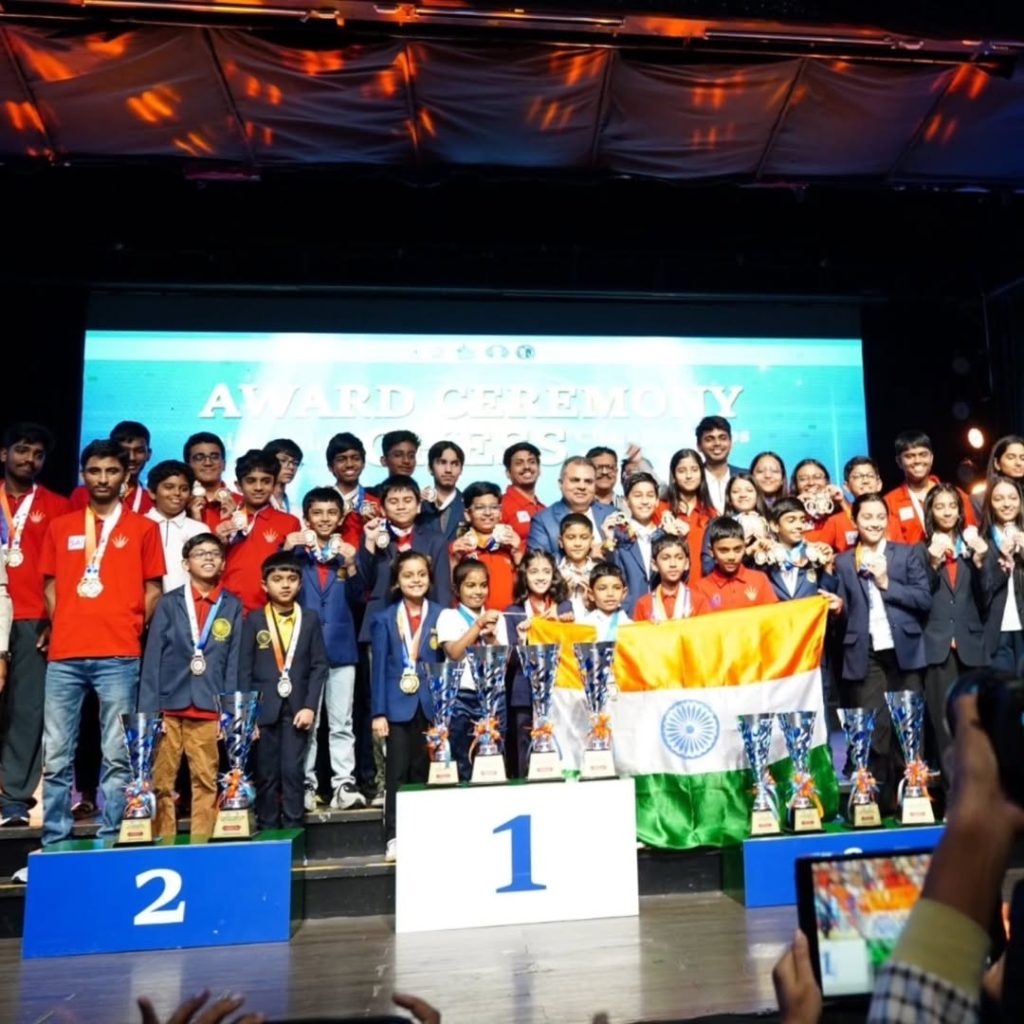
But this year’s championship held a special significance for us at Madras School of Chess—our very own Co-Founder, Akash Ganesan, played a key role at the event, inspiring young talents on and off the board with his presence, guidance, and leadership.
A Landmark Performance for India
India’s young warriors delivered a phenomenal medal haul that celebrated both individual brilliance and collective strength.
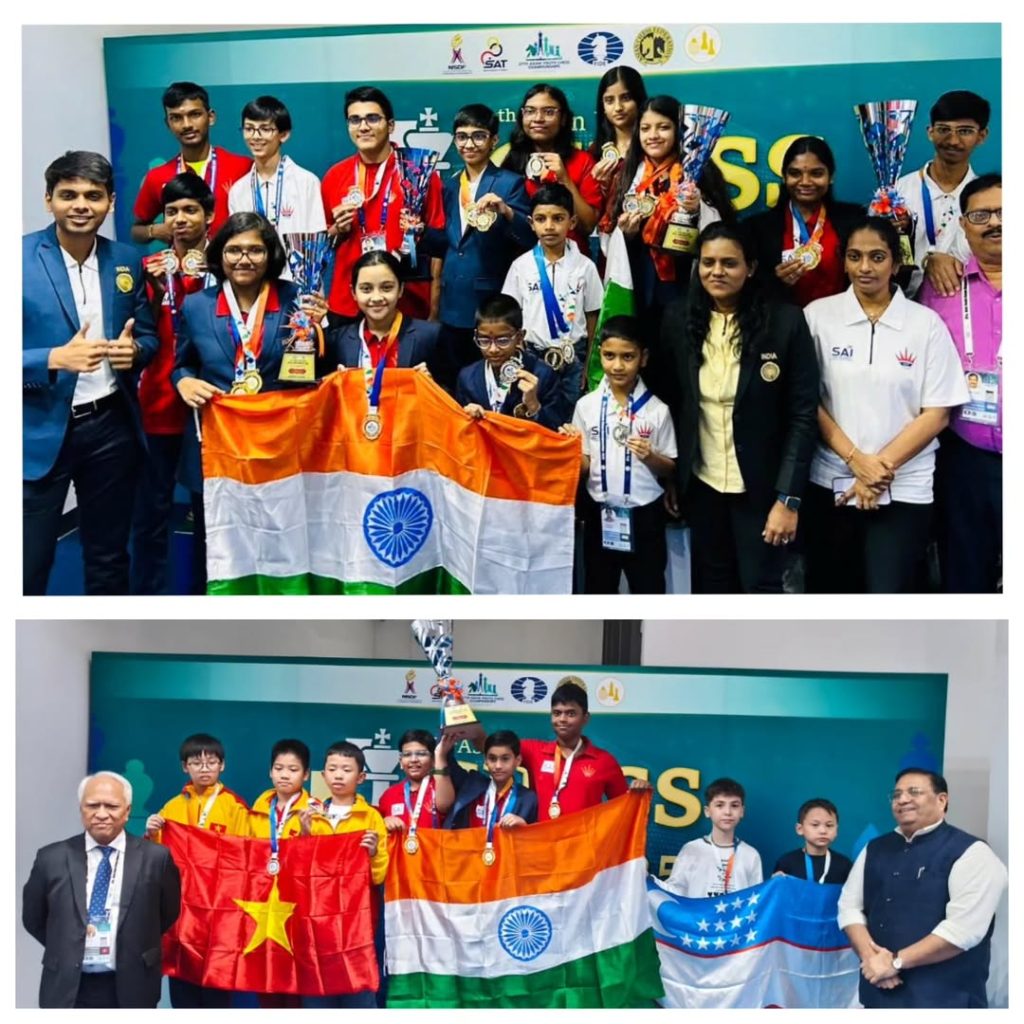
🥇 Individual Medal Winners – 9 Medals Total
3 Gold
- WCM Divi Bijesh – U10 Girls
- WFM Nivedita – U14 Girls
- FM Prishita Gupta – U16 Girls
1 Silver
- WCM Pratitee Bordoloi – U12 Girls
5 Bronze
- Tamizh Amudhan S – U8 Boys
- CM Madhvendra Pratap Sharma – U12 Boys
- FM Rosh Jain – U14 Boys
- WFM Saranya Devi Narahari – U14 Girls
- IM Vaz Ethan – U16 Boys
Each of these performances reflects years of disciplined training, countless hours of practice, and the fearless spirit of India’s youth.
🏆 Team Medal Triumph
India’s performance in the team events was equally inspiring:
🥇 3 Team Gold
U8 Girls, U12 Boys, U14 Girls
🥈 4 Team Silver
U8 Boys, U12 Girls, U16 Boys, U16 Girls
🥉 3 Team Bronze
U10 Girls, U14 Boys, U18 Boys
With 10 team medals combined, India showcased not only individual excellence but also team unity, depth of talent, and strong coaching support across all age groups.
Spotlight on Madras School of Chess Co-Founder — Akash Ganesan
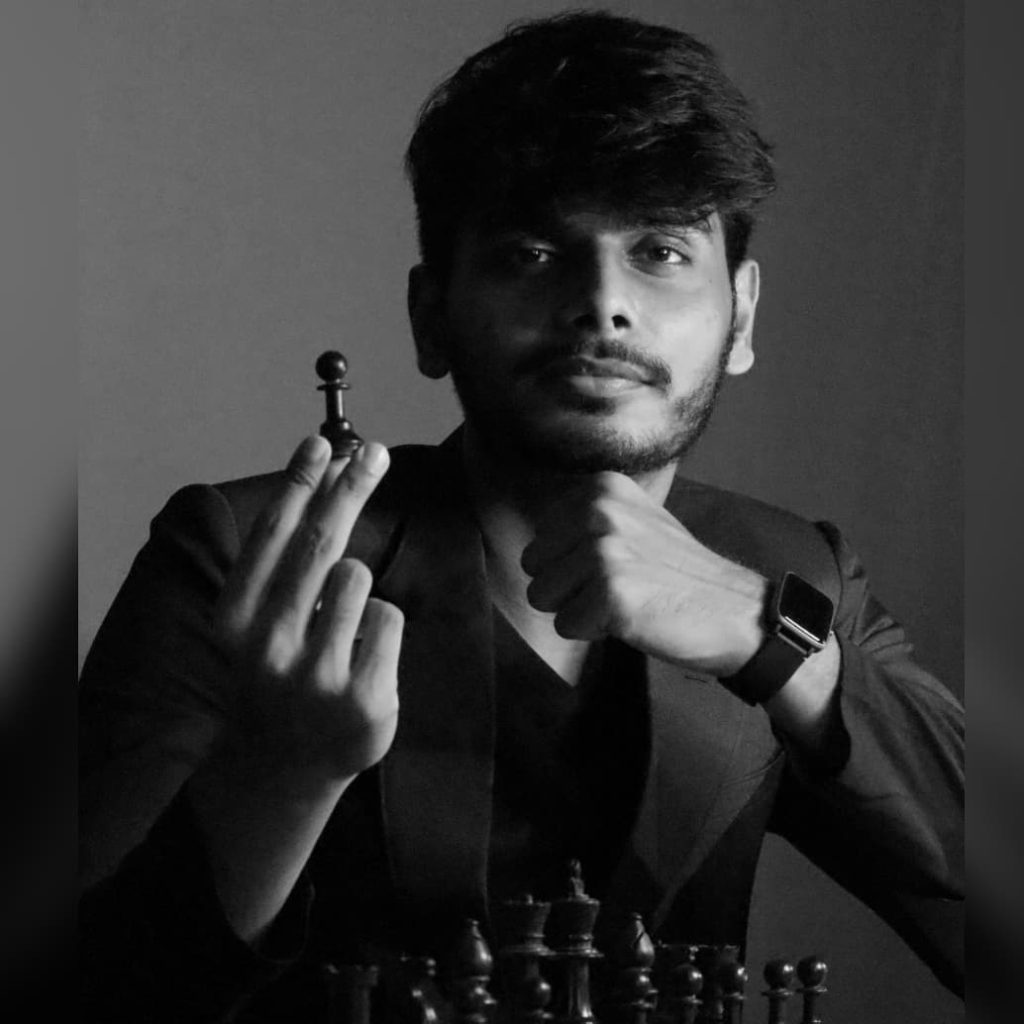
Among the proud figures at the championship was Akash Ganesan, Co-Founder of Madras School of Chess, whose presence added immense value to the Indian camp.
Known for his sharp analytical ability, calm mentorship style, and deep insight into youth chess development, Akash brought tremendous support and inspiration to the young players. His involvement at the championship reflects:
✔ His dedication to India’s chess ecosystem
Akash continues to be a key contributor to the growth of budding players, helping them navigate high-pressure international events with strategic clarity.
✔ His passion for empowering young talent
Whether it’s in the classroom at Madras School of Chess or at international events, Akash stands at the heart of nurturing disciplined, fearless thinkers.
✔ His belief in India’s future champions
He has always emphasized that India’s next grandmasters are already training among us today—and this championship proved him right once again.
For the students and parents of Madras School of Chess, seeing a co-founder actively participating at a prestigious continental event is both inspiring and reassuring. It reflects the academy’s philosophy: mentors lead from the front, not from the sidelines.
A New Chapter Begins – The Standard Segment Awaits
With the Rapid segment concluded, the spotlight now shifts to the Standard format, known as the most demanding and prestigious segment of the entire championship. This is where deep preparation, strong fundamentals, and inner resilience take center stage.
As India moves into this next phase, all eyes will be on the rising stars as well as the mentors guiding them—including our very own Akash Ganesan, who continues to represent the spirit and values of Madras School of Chess on an international platform.
A Proud Moment for India & Madras School of Chess
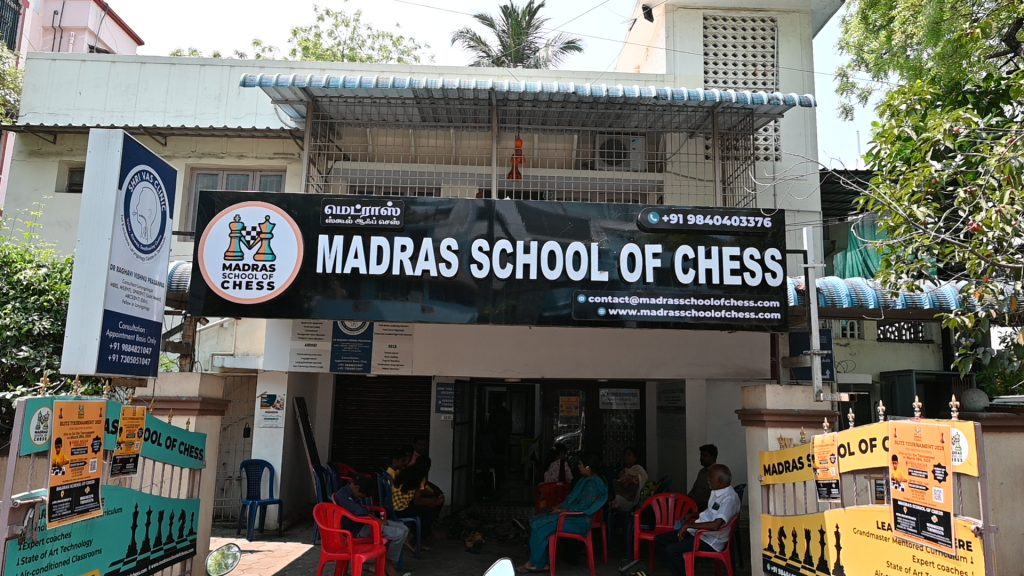
This championship wasn’t just about medals—it was about belief.
Belief in young minds.
Belief in preparation.
Belief in the future of Indian chess.
India’s groundbreaking performance is a reminder that the next generation of champions is already here—sharp, fearless, and ready to take on the world.
And for us at Madras School of Chess, having Co-Founder Akash Ganesan present at such a prestigious event stands as a powerful testament to our commitment:
We don’t just teach chess…
We help shape champions.
More stories, top games, and behind-the-scenes insights from the Standard segment are on the way. Stay tuned!
♟️ Ready to Level Up Your Game?
𝐉𝐨𝐢𝐧 𝐌𝐚𝐝𝐫𝐚𝐬 𝐒𝐜𝐡𝐨𝐨𝐥 𝐨𝐟 𝐂𝐡𝐞𝐬𝐬 𝐭𝐨 𝐝𝐞𝐟𝐞𝐚𝐭 𝐲𝐨𝐮𝐫 𝐨𝐩𝐩𝐨𝐧𝐞𝐧𝐭 𝐰𝐢𝐭𝐡 𝐛𝐫𝐢𝐥𝐥𝐢𝐚𝐧𝐜𝐞 𝐚𝐧𝐝 𝐩𝐫𝐞𝐜𝐢𝐬𝐢𝐨𝐧!
📍 Locations: T.Nagar | Anna Nagar | Mandaveli | Online
📞 Call: +91 98404 03376
🌐 Visit: www.madrasschoolofchess.com
📲 Follow us: @madrasschoolofchess
REVENGE MODE ACTIVATED! Nihal Sarin Slams Magnus Carlsen and Naka in Bullet Brawl After World Cup Stunner
Nov 19th, 2025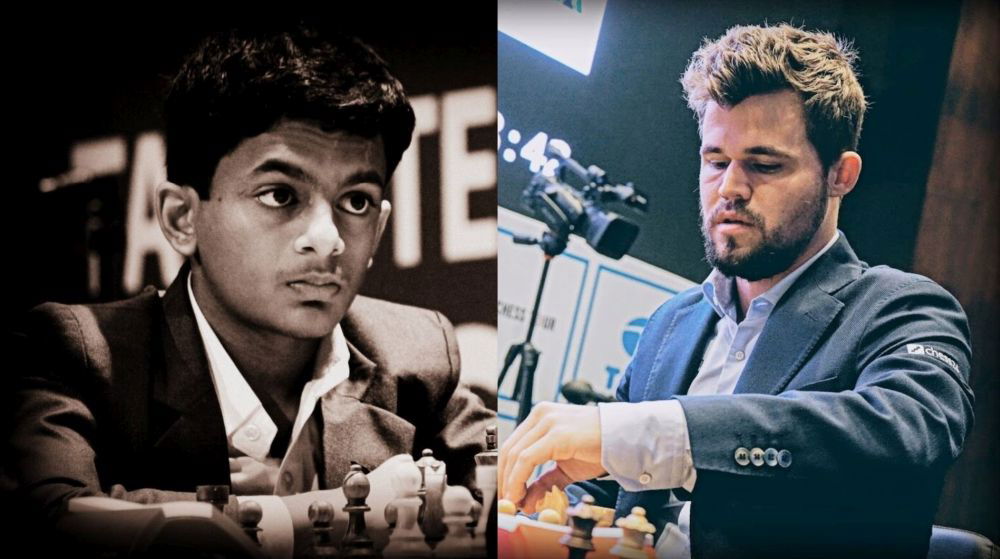
In the world of chess, comebacks are often louder than victories—and Nihal Sarin has just proven that again.
Barely days after his shocking early exit from the FIDE World Cup 2025 in Goa, the 21-year-old Indian speed-chess sensation delivered a statement performance that rocked the global chess community.
On Saturday, Nihal stormed into the Bullet Brawl Arena on Chess.com, a lightning-fast 1+0 battleground where instincts rule and hesitation is fatal. What followed next was nothing short of spectacular—he defeated Magnus Carlsen, Hikaru Nakamura and Praggnanandhaa in the same event, claiming his third Bullet Brawl title.
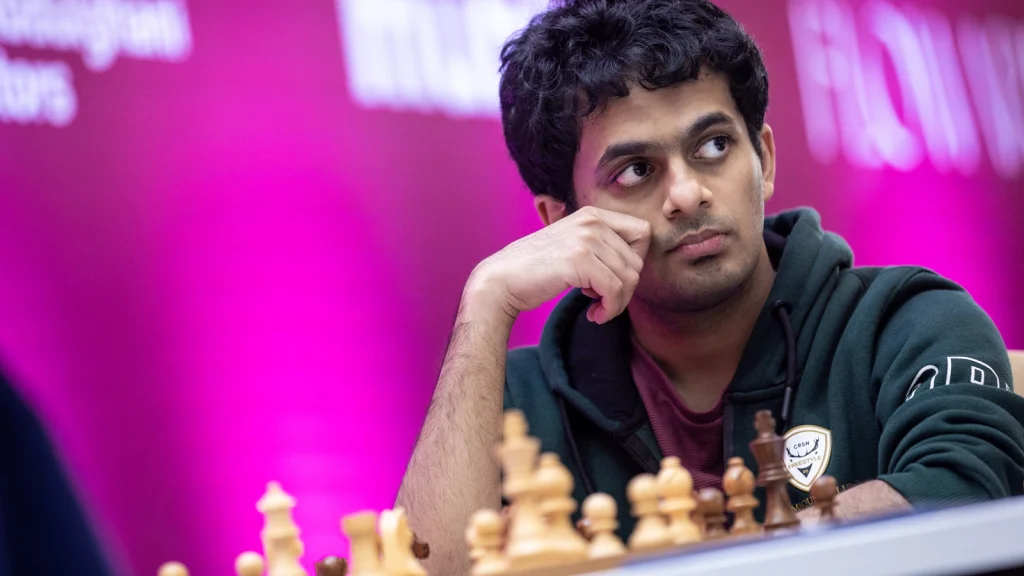
Yes. All three. In one night.
A redemption arc so perfect the chess world couldn’t stop talking about it.
A Night of Pure Speed Chess Chaos
Bullet Brawl is a brutal two-hour marathon where players fight for points every minute, turning the arena into a warzone of tactics, time scrambles and neural-level calculation.
Yet, Nihal seemed to move in a different universe altogether.
1.65 games played
2.45 wins
3.10 draws
4.10 losses
5.Total: 151 points
He finished ahead of Hikaru Nakamura and Andrew Tang, both legends of bullet chess. For context, Nakamura owns 48 all-time Bullet Brawl wins. And yet, on this night… Nihal led the pack.
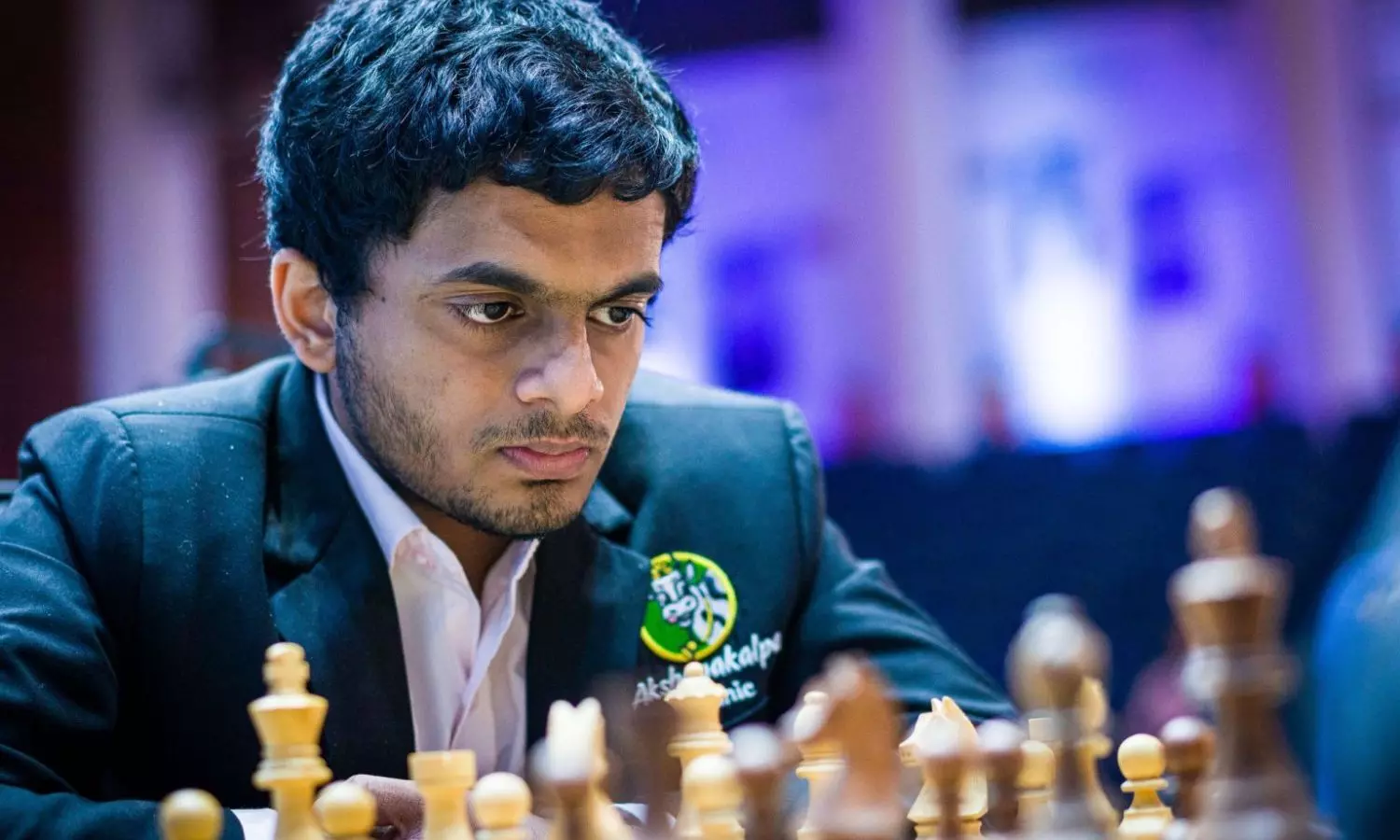
Often described as a “speed chess demon,” Nihal reminded the chess world why online formats fear his name.
What Makes This Victory Special?
Because this win came right after a disappointing World Cup performance—his second-round loss to Greek GM Stamatis Kourkoulos-Arditis had left fans shocked.
But champions don’t pause. They rise.
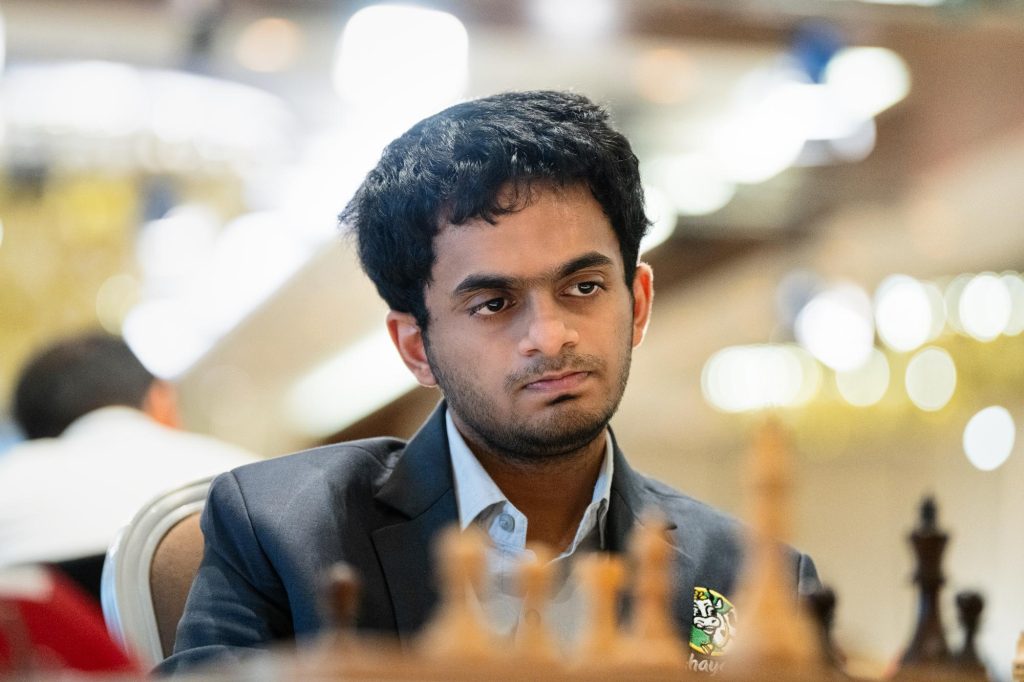
Nihal didn’t retreat.
He recalibrated.
And then he unleashed a performance that felt like both revenge and rebirth.
His dominance across formats—especially blitz and bullet—continues to inspire young players who see online arenas as the new proving grounds of chess mastery.
The Vishnu Prasanna Connection: A Legacy of Excellence
Behind every great player, there are great mentors—and one of the key figures in Nihal Sarin’s formative chess journey is GM Vishnu Prasanna, the renowned coach who helped shape Nihal’s early growth into an elite player.
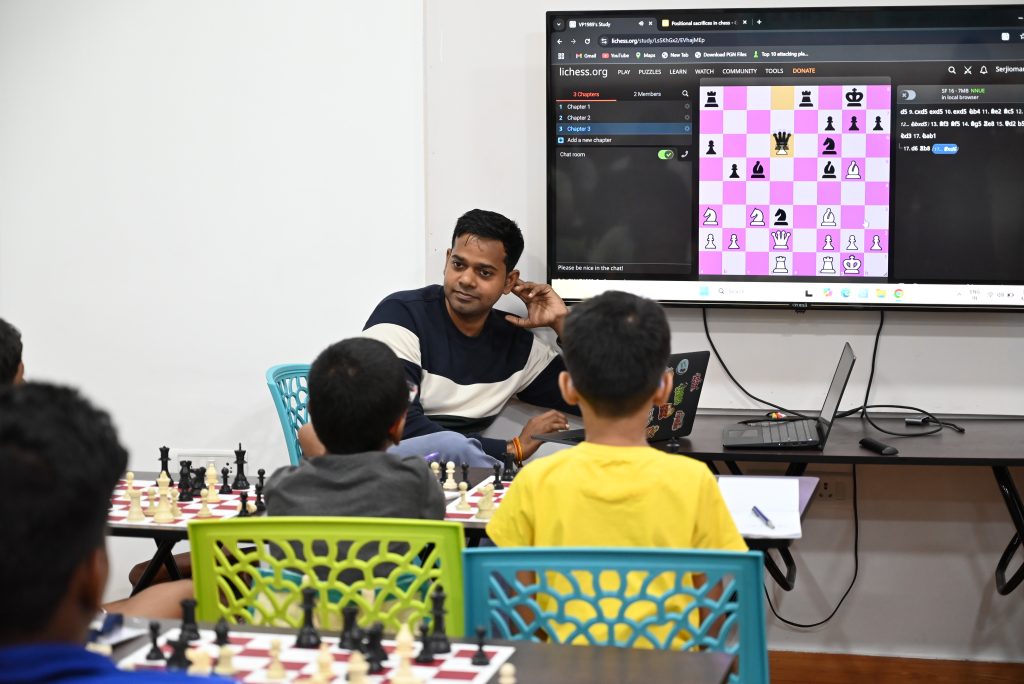
Today, Vishnu Prasanna stands as the Co-Founder of the Madras School of Chess, one of India’s fastest-growing chess academies known for its deep training culture, strong coaching team, and grandmaster-level guidance.
His role in Nihal’s evolution is well-acknowledged in the Indian chess community
1.Building Nihal’s early positional strength
2.Instilling disciplined calculation methods
3.Sharpening his tactical alertness
4.Strengthening emotional balance during competitive pressure
Nihal’s achievements—including this latest Bullet Brawl triumph—continue to reflect the roots established through years of high-quality coaching.
For parents and students across India, this connection signals a clear message:
The Madras School of Chess isn’t just another academy. It is built by the same minds that trained India’s brightest stars.
Why This Win Matters for Indian Chess
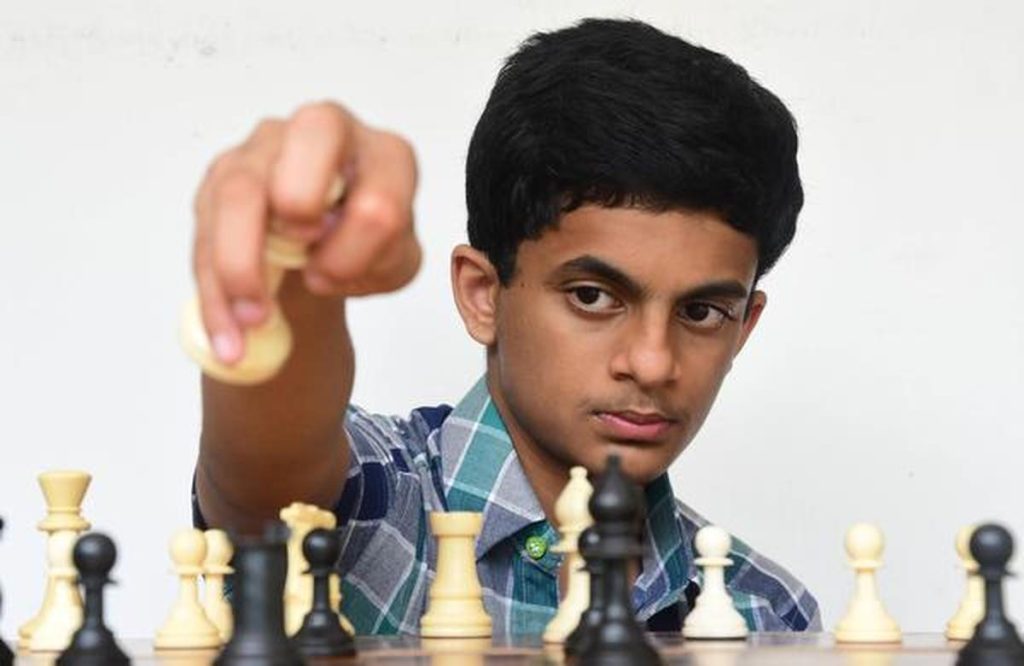
India is witnessing a chess boom—Gukesh’s World Championship title, rising young prodigies, stronger domestic tournaments, and global headlines.
Nihal’s latest win adds another spark to this movement.
His performance shows:
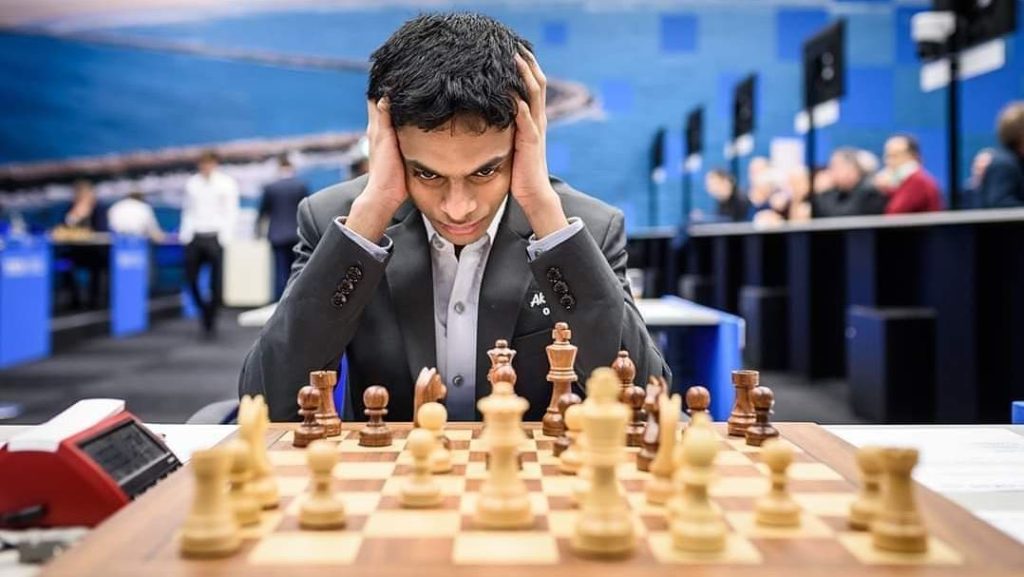
India’s young chess generation is now strong enough to challenge legends like Magnus Carlsen and Hikaru Nakamura. They are especially dominating online chess formats, proving that India is becoming a powerful force in fast-paced games. These players also show incredible mental strength, bouncing back from losses and staying focused under pressure. Altogether, India is producing world-class talent across blitz, rapid, bullet, and classical chess — making the country one of the most complete and promising chess nations in the world.
This victory isn’t just individual glory.
It’s a message to the chess world:
India’s next wave is here, and stronger than ever.
A New Chapter Begins
Nihal’s Bullet Brawl win is more than a tournament result.
It’s a reminder that setbacks are temporary, but champions are permanent.
As he continues to rise—and as academies like the Madras School of Chess push forward with elite-level training for the next generation—the future of Indian chess looks unstoppable.
The board is set.
The players are ready.
And India is writing a new era in global chess.
♟️ Ready to Level Up Your Game?
𝐉𝐨𝐢𝐧 𝐌𝐚𝐝𝐫𝐚𝐬 𝐒𝐜𝐡𝐨𝐨𝐥 𝐨𝐟 𝐂𝐡𝐞𝐬𝐬 𝐭𝐨 𝐝𝐞𝐟𝐞𝐚𝐭 𝐲𝐨𝐮𝐫 𝐨𝐩𝐩𝐨𝐧𝐞𝐧𝐭 𝐰𝐢𝐭𝐡 𝐛𝐫𝐢𝐥𝐥𝐢𝐚𝐧𝐜𝐞 𝐚𝐧𝐝 𝐩𝐫𝐞𝐜𝐢𝐬𝐢𝐨𝐧!
📍 Locations: T.Nagar | Anna Nagar | Mandaveli | Online
📞 Call: +91 98404 03376
🌐 Visit: www.madrasschoolofchess.com
📲 Follow us: @madrasschoolofchess
The Dreaming Board — Where Young Minds Turn into Grandmasters
Nov 07th, 2025
In a world where children chase fleeting trends, one timeless art continues to shape minds and inspire dreams — Chess.
For hundreds of young players in Chennai, that dream begins at Madras School of Chess (MSC) — the city’s leading academy founded by Grandmaster Vishnu Prasanna, the former coach of World Chess Champion D. Gukesh.
At MSC, the chessboard isn’t just 64 squares — it’s a canvas of creativity, courage, and critical thinking.
From T. Nagar to Anna Nagar, Mandaveli, and Online, our students learn to see the world the way masters do: one move ahead.

“When kids start to think before they move, they begin to see life differently,” says GM Vishnu Prasanna.
Our philosophy is simple: nurture the mind, not just the moves.
Every child is guided personally by certified trainers and FIDE-rated coaches who help them discover their unique playing style — turning curiosity into confidence and practice into progress.
Why Chess Feels Like a Dream to Kids
For children, chess feels magical.
A knight’s leap becomes a story, a queen’s defense becomes a promise.
At Madras School of Chess, that magic is transformed into mastery through a structured, playful learning environment:
- 🎯 Age-based batches for beginners, intermediate, and advanced levels
- 🧠 Personal mentorship with performance tracking and game analysis
- ♟️ Regular tournaments & internal leagues that build competitive focus
- 💡 Tactical puzzle labs and masterclass game breakdowns to deepen intuition
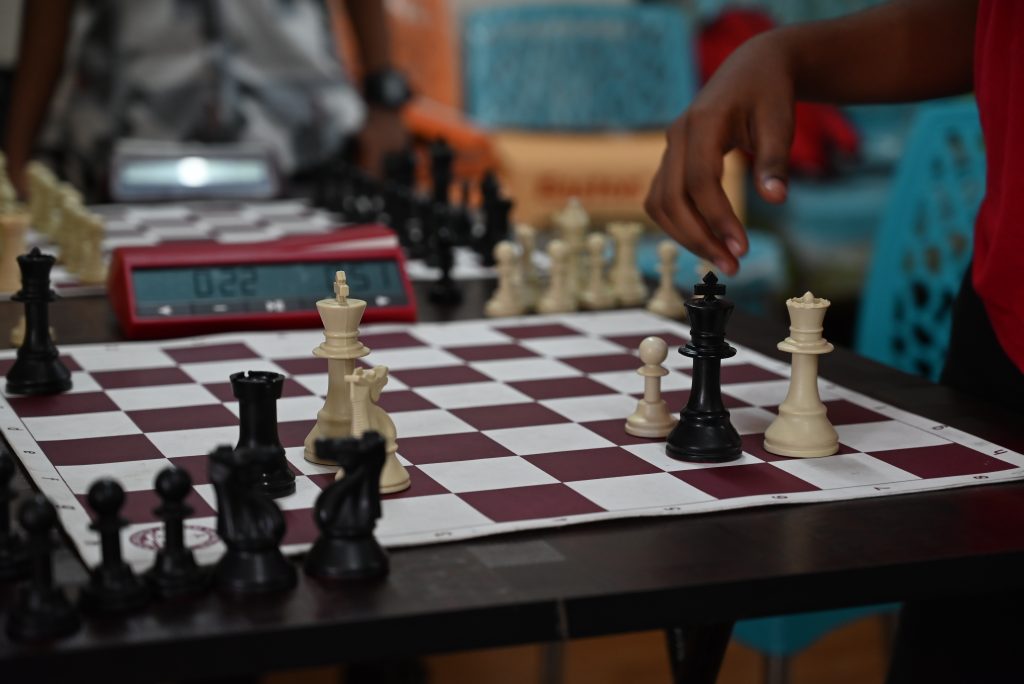
Every session is designed to spark imagination while sharpening discipline — that’s why parents across Chennai trust MSC as the place where focus meets fun.
🌟 The Emotion Behind the Game
Chess teaches more than strategy. It teaches patience, composure, and creative thinking.
Our students often surprise parents with their newfound calm, confidence, and ability to plan — not just on the board, but in academics and daily life too.
Champions in the Making: The MSC Success Story
At MSC, success isn’t measured only in trophies — it’s seen in the steady rise of our students’ performance across every batch and category.
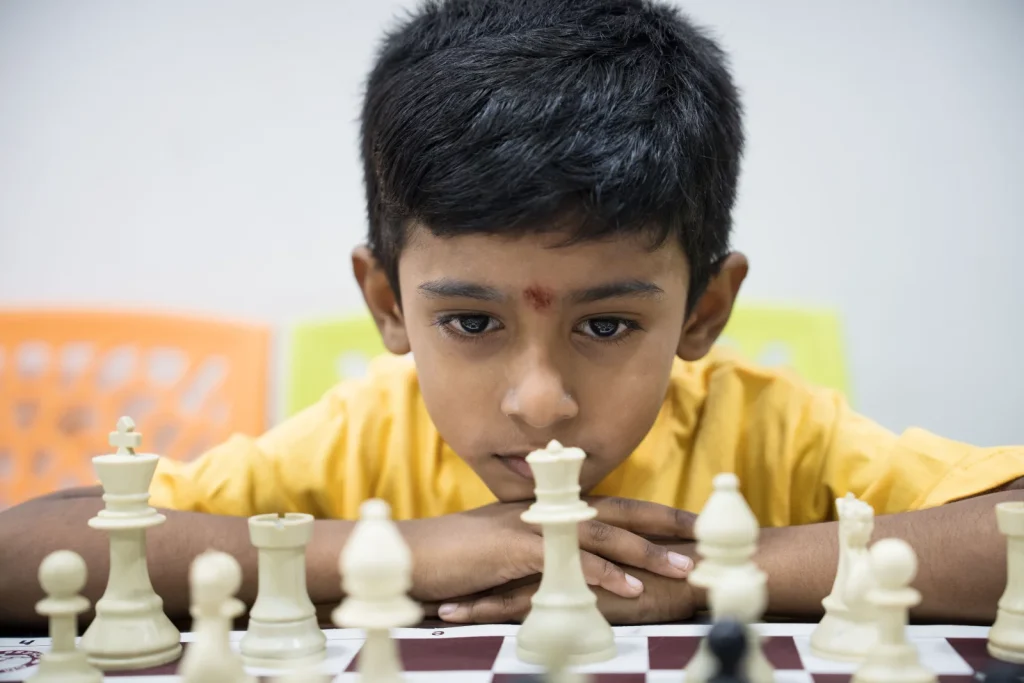
🏅 Growing Every Day, Move by Move
Each month, our academy’s achievement board grows longer.
From district-level wins to state-level podium finishes, MSC students have been consistently outperforming in tournaments across Tamil Nadu and beyond.
Our juniors dominate under-8 and under-10 categories, while advanced batch players now compete at national-ranking events with remarkable success rates.
Behind every medal is a story of mentorship, discipline, and passion — a reflection of the MSC ecosystem that blends analytical training with emotional encouragement.
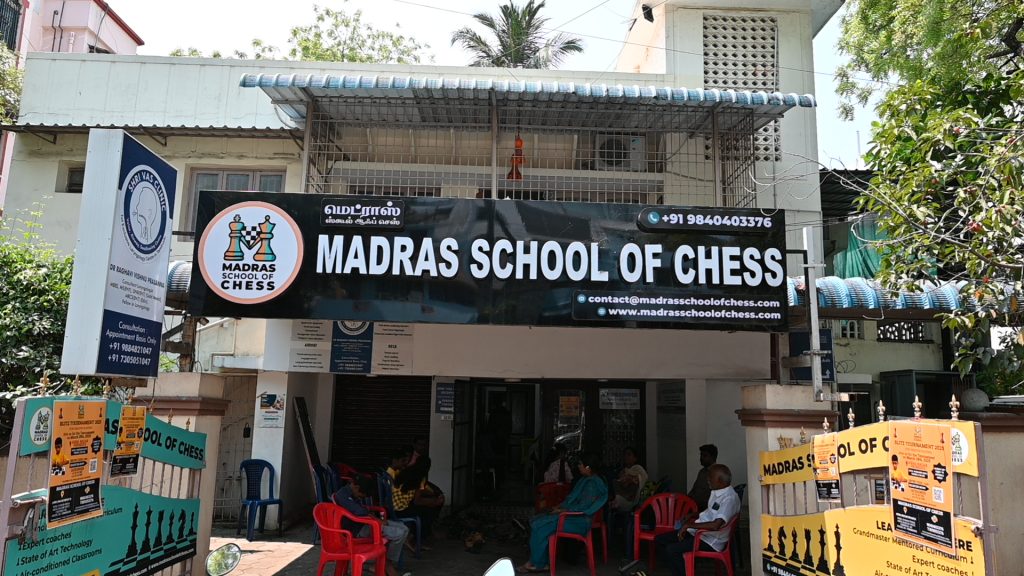
“We’ve built a culture where improvement matters more than instant victory — and that’s what keeps our winning curve rising,”
— GM Vishnu Prasanna, Founder.
✨ Inspired by Legends, Guided by Masters
Following the legacy of Chennai’s very own Viswanathan Anand, our founder and coaches instill the same spirit of perseverance and curiosity that defines India’s new-age grandmasters like Gukesh D.
Through our hybrid training model — offline and online — we now reach students across India and overseas, nurturing the next generation of global thinkers.
Your Child’s Chess Story Starts Here
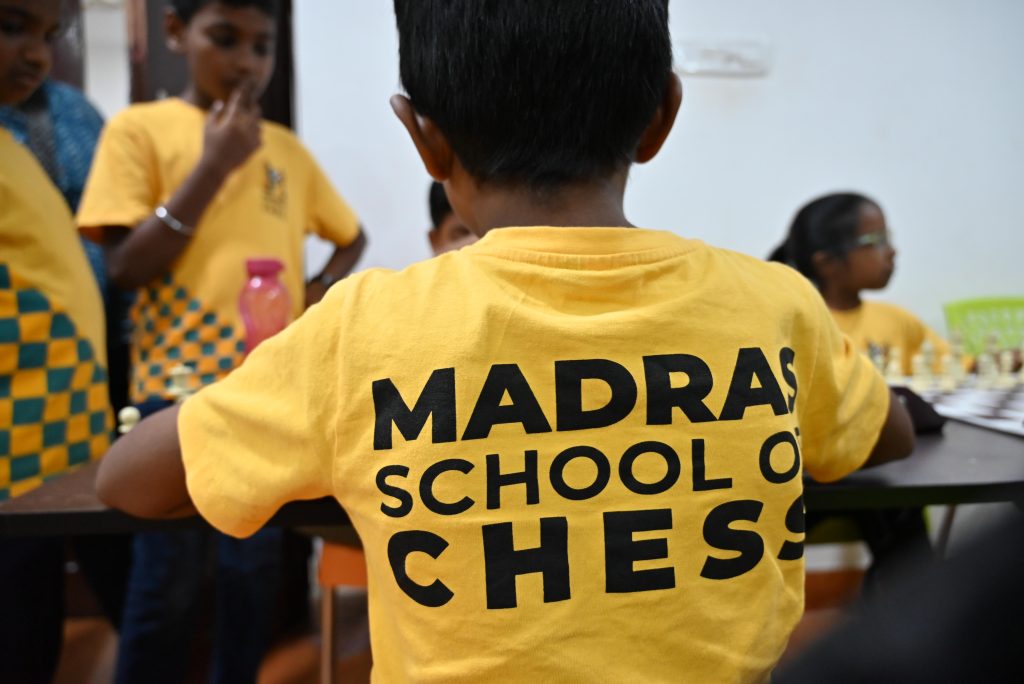
Join Chennai’s No. 1 Chess Academy — Madras School of Chess, where dreams become discipline and every move creates a story worth telling.
📍 Locations: T. Nagar | Anna Nagar | Mandaveli | Online
📞 Call: +91 98404 03376
🌐 Visit: www.madrasschoolofchess.com
Madras School of Chess — Where dreams play their first move.
𝐀 𝐍𝐞𝐰 𝐆𝐞𝐧𝐞𝐫𝐚𝐭𝐢𝐨𝐧 𝐓𝐚𝐤𝐞𝐬 𝐭𝐡𝐞 𝐁𝐨𝐚𝐫𝐝
Oct 24th, 2025
Chess is experiencing a seismic shift. While veterans still dominate top boards, a younger generation is breaking through with astonishing force. Consider the rising star Faustino Oro — only 11 years old — who recently scored an undefeated 7½/9 and earned his first GM norm, setting records for the strongest performance under-12 in history.
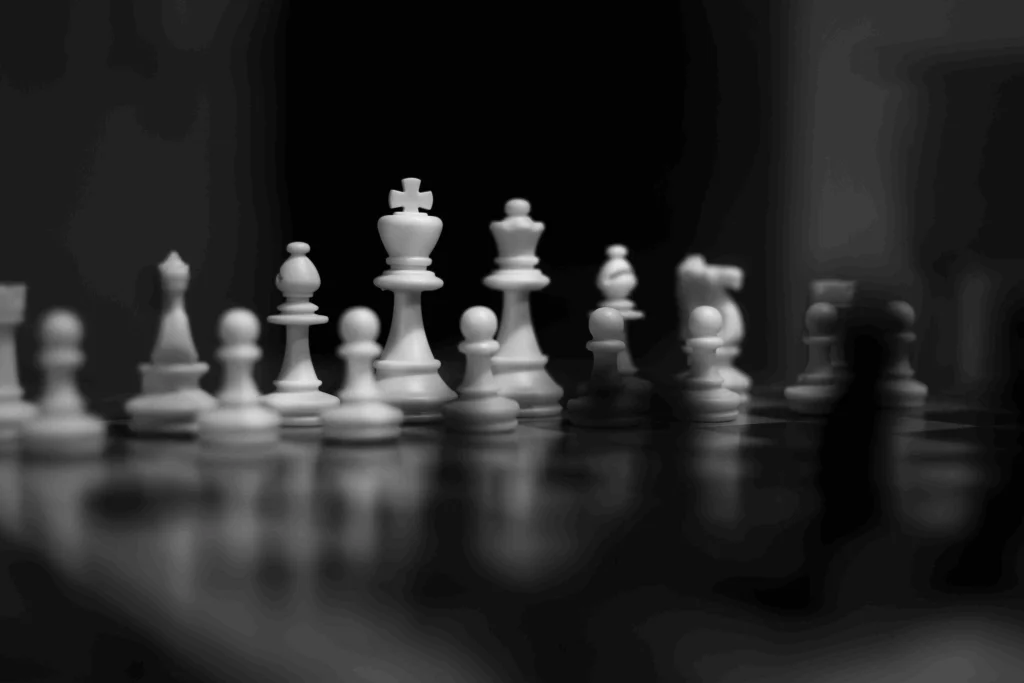
At the same time, major events such as the FIDE Grand Swiss 2025 in Samarkand showcased emerging talents like Matthias Blübaum and others who secured qualification spots for the highly-coveted Candidates Tournament.
𝐖𝐡𝐚𝐭’𝐬 𝐝𝐫𝐢𝐯𝐢𝐧𝐠 𝐭𝐡𝐢𝐬 𝐠𝐞𝐧𝐞𝐫𝐚𝐭𝐢𝐨𝐧𝐚𝐥 𝐬𝐮𝐫𝐠𝐞?

A mix of enhanced training tools (including top-tier online platforms), global exposure even at early ages, and formats that reward dynamic play and risk-taking.
For fans, this means fresh narratives and unexpected outcomes. For federations, it signals the importance of nurturing juniors and giving them pathways. For you, the reader, it means that the chess world you thought you knew is being rewritten right now.
𝐑𝐚𝐩𝐢𝐝 & 𝐁𝐮𝐥𝐥𝐞𝐭 𝐅𝐨𝐫𝐦𝐚𝐭𝐬: 𝐂𝐡𝐚𝐧𝐠𝐢𝐧𝐠 𝐇𝐨𝐰 𝐂𝐡𝐞𝐬𝐬 𝐈𝐬 𝐏𝐥𝐚𝐲𝐞𝐝

The second trend reshaping chess: speed. The classic slow-time control games still matter, but rapid, blitz and bullet formats are gaining outsized influence. The Bullet Chess Championship 2025 on saw Alireza Firouzja dominate with a blistering 19.5-5.5 final win — a display of tactical acuity, lightning reflexes and psychological dominance.
Meanwhile, the SuperUnited Croatia Rapid & Blitz 2025 event saw Magnus Carlsen clinch victory with a round to spare, even while admitting his “B-game” was active.
𝐖𝐡𝐚𝐭 𝐝𝐨𝐞𝐬 𝐭𝐡𝐢𝐬 𝐦𝐞𝐚𝐧 𝐟𝐨𝐫 𝐭𝐡𝐞 𝐠𝐚𝐦𝐞?
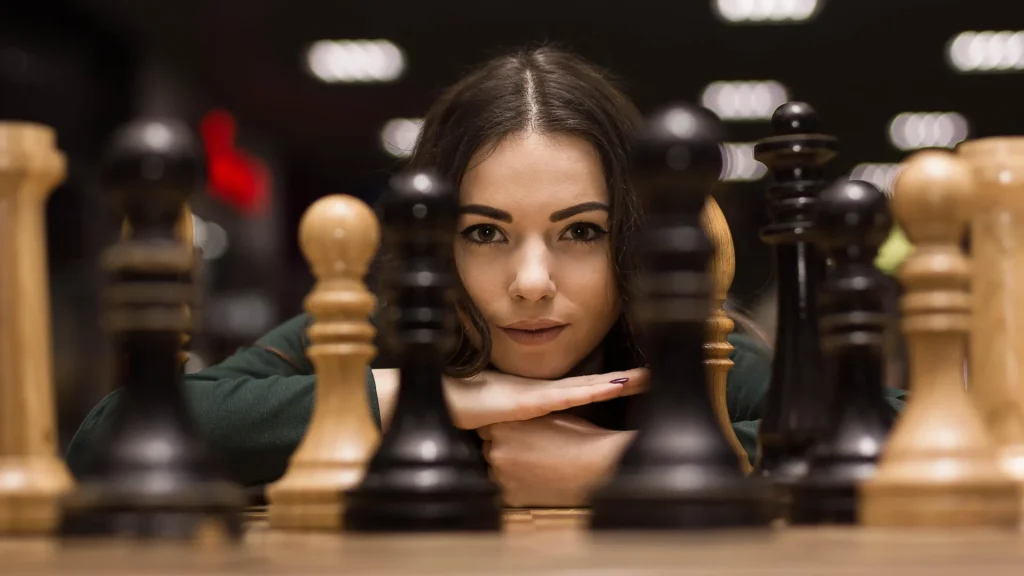
𝐒𝐡𝐨𝐫𝐭𝐞𝐫 𝐚𝐭𝐭𝐞𝐧𝐭𝐢𝐨𝐧 𝐬𝐩𝐚𝐧𝐬: With online streams and social media clips, players who can shine in fast time-controls are gaining fans and sponsors.
𝐃𝐢𝐟𝐟𝐞𝐫𝐞𝐧𝐭 𝐩𝐫𝐞𝐩𝐚𝐫𝐚𝐭𝐢𝐨𝐧: Depth of opening preparation is still vital, but so is adaptability, intuition and precision under extreme time pressure.
𝐇𝐲𝐛𝐫𝐢𝐝 𝐬𝐤𝐢𝐥𝐥𝐬𝐞𝐭: Elite players now train for both classical stamina and rapid reflexes. The line between “rapid specialist” and “classical champion” is blurring.
For anyone playing or following chess, this means: adapting to formats, studying faster tactics, and valuing the “bullet mindset” alongside the “𝐠𝐫𝐚𝐧𝐝𝐦𝐚𝐬𝐭𝐞𝐫 𝐝𝐞𝐞𝐩-𝐚𝐧𝐚𝐥𝐲𝐬𝐢𝐬 𝐦𝐢𝐧𝐝𝐬𝐞𝐭”. The modern champion is versatile.
𝐖𝐡𝐚𝐭 𝐈𝐭 𝐀𝐥𝐥 𝐌𝐞𝐚𝐧𝐬 & 𝐇𝐨𝐰 𝐘𝐨𝐮 𝐂𝐚𝐧 𝐏𝐥𝐮𝐠 𝐈𝐧?
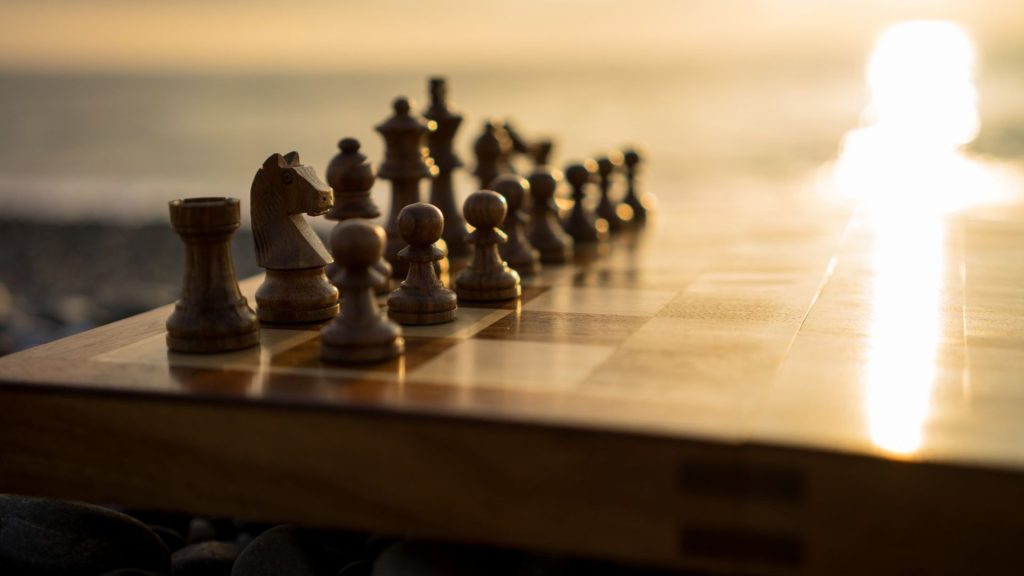
𝐘𝐨𝐮𝐭𝐡 𝐚𝐜𝐜𝐞𝐥𝐞𝐫𝐚𝐭𝐢𝐨𝐧: If an 11-year-old can set records, federations, coaches and clubs must start talent spotting even earlier and offering strong support, both online and offline.
𝐅𝐨𝐫𝐦𝐚𝐭 𝐝𝐢𝐯𝐞𝐫𝐬𝐢𝐟𝐢𝐜𝐚𝐭𝐢𝐨𝐧: Events are no longer just classical tournaments; rapid, blitz, mixed formats (and even new variants) will play ever-larger roles. Players who ignore them risk being left behind.
𝐆𝐥𝐨𝐛𝐚𝐥 𝐚𝐜𝐜𝐞𝐬𝐬 & 𝐢𝐧𝐜𝐥𝐮𝐬𝐢𝐨𝐧:Chess is more accessible than ever — even in remote regions. The generational and format shifts lower traditional barriers.
𝐂𝐨𝐦𝐦𝐞𝐫𝐜𝐢𝐚𝐥 & 𝐬𝐩𝐞𝐜𝐭𝐚𝐭𝐨𝐫 𝐢𝐦𝐩𝐥𝐢𝐜𝐚𝐭𝐢𝐨𝐧𝐬: Fast games = more excitement for broadcast, streaming and sponsors. The game is more viewer-friendly, more dynamic.
𝐇𝐨𝐰 𝐲𝐨𝐮 (𝐚𝐬 𝐚 𝐩𝐥𝐚𝐲𝐞𝐫, 𝐟𝐚𝐧 𝐨𝐫 𝐜𝐥𝐮𝐛 𝐨𝐫𝐠𝐚𝐧𝐢𝐬𝐞𝐫) 𝐜𝐚𝐧 𝐭𝐚𝐤𝐞 𝐚𝐝𝐯𝐚𝐧𝐭𝐚𝐠𝐞
For players: Incorporate rapid and blitz training into your routine. Work on tactical puzzles under time constraints. Experiment with bullet and speed formats online to sharpen instinct.
For coaches and clubs: Build junior programmes that emphasise flexible formats, online coaching tools, and tournament experience across speed variants.
For fans and content creators: Focus on stories of youth breakout stars, speed format drama, and explain the format differences to new audiences.
𝐅𝐨𝐫 𝐨𝐫𝐠𝐚𝐧𝐢𝐬𝐞𝐫𝐬:Consider mixed-format events (classical + rapid + blitz) to appeal to broader audiences; embrace younger players and recognise that pace matters.
𝐅𝐢𝐧𝐚𝐥 𝐭𝐡𝐨𝐮𝐠𝐡𝐭
Chess of 2025 isn’t just an extension of the past — it’s a fusion of tradition and modernity. A game where youth challenge veterans, where blitz and bullet are as prestigious as classical, and where global access accelerates talent like never before. If you’re part of the chess community—whether competitor, coach, club leader or fan—you’re living in an era of transformation. Embrace it. Study broadly. Play boldly. Because the board has changed, and so must we.
♟️ Ready to Level Up Your Game?
𝐉𝐨𝐢𝐧 𝐌𝐚𝐝𝐫𝐚𝐬 𝐒𝐜𝐡𝐨𝐨𝐥 𝐨𝐟 𝐂𝐡𝐞𝐬𝐬 𝐭𝐨 𝐝𝐞𝐟𝐞𝐚𝐭 𝐲𝐨𝐮𝐫 𝐨𝐩𝐩𝐨𝐧𝐞𝐧𝐭 𝐰𝐢𝐭𝐡 𝐛𝐫𝐢𝐥𝐥𝐢𝐚𝐧𝐜𝐞 𝐚𝐧𝐝 𝐩𝐫𝐞𝐜𝐢𝐬𝐢𝐨𝐧!
📍 Locations: T.Nagar | Anna Nagar | Mandaveli | Online
📞 Call: +91 98404 03376
🌐 Visit: www.madrasschoolofchess.com
📲 Follow us: @madrasschoolofchess
𝐍𝐢𝐡𝐚𝐥 𝐒𝐚𝐫𝐢𝐧 𝐉𝐨𝐢𝐧𝐬 𝐭𝐡𝐞 𝟐𝟕𝟎𝟎 𝐂𝐥𝐮𝐛 — 𝐓𝐡𝐞 𝐑𝐢𝐬𝐞 𝐨𝐟 𝐚 𝐍𝐞𝐰 𝐈𝐧𝐝𝐢𝐚𝐧 𝐒𝐮𝐩𝐞𝐫 𝐆𝐫𝐚𝐧𝐝𝐦𝐚𝐬𝐭𝐞𝐫
Oct 08th, 2025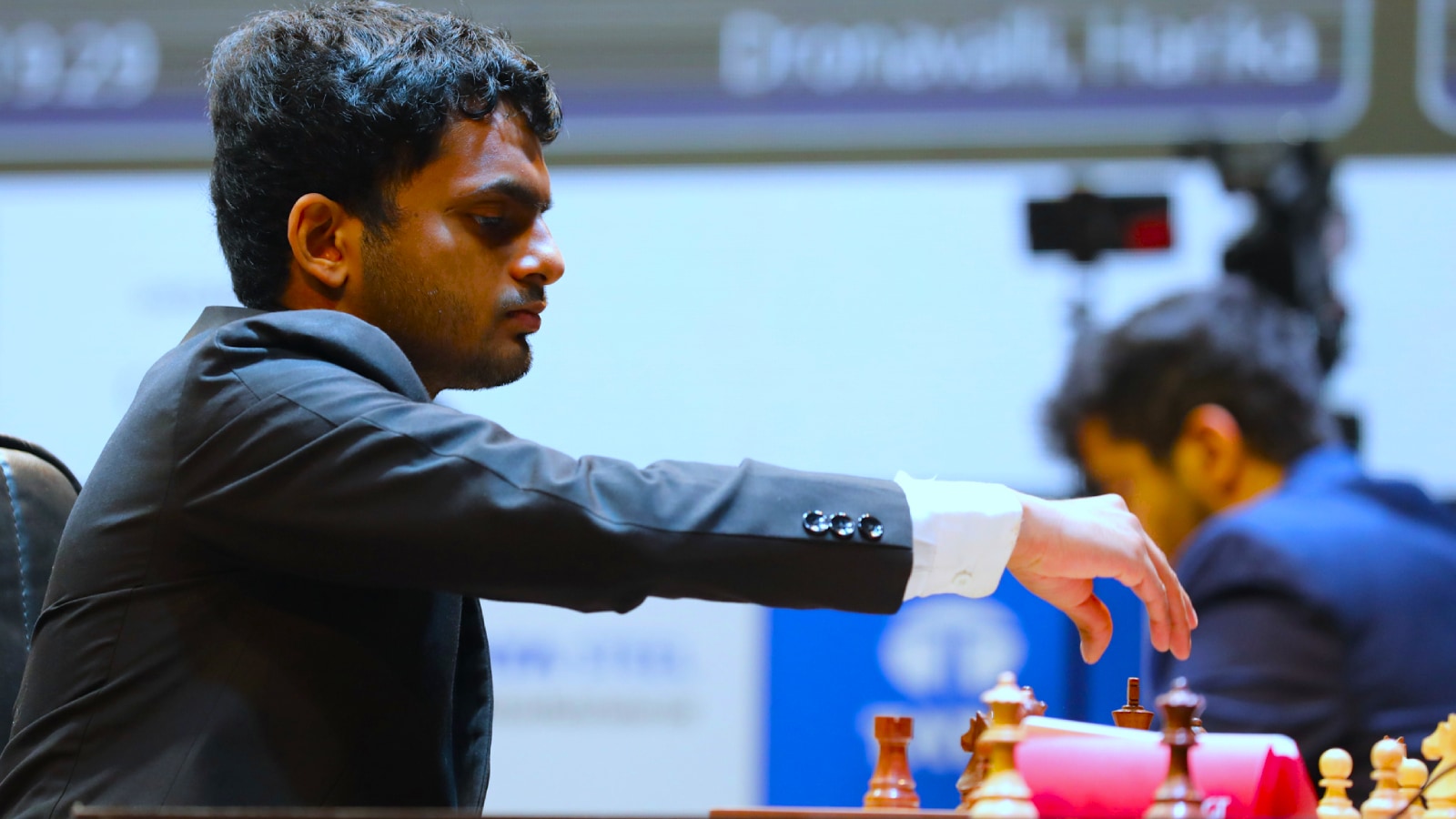
In the ever-evolving world of chess, few names embody calm brilliance quite like Grandmaster Nihal Sarin. This October, the young genius from Thrissur achieved a milestone long awaited by Indian chess fans — crossing the 2700 rating mark in the official FIDE ratings for the first time in his career.
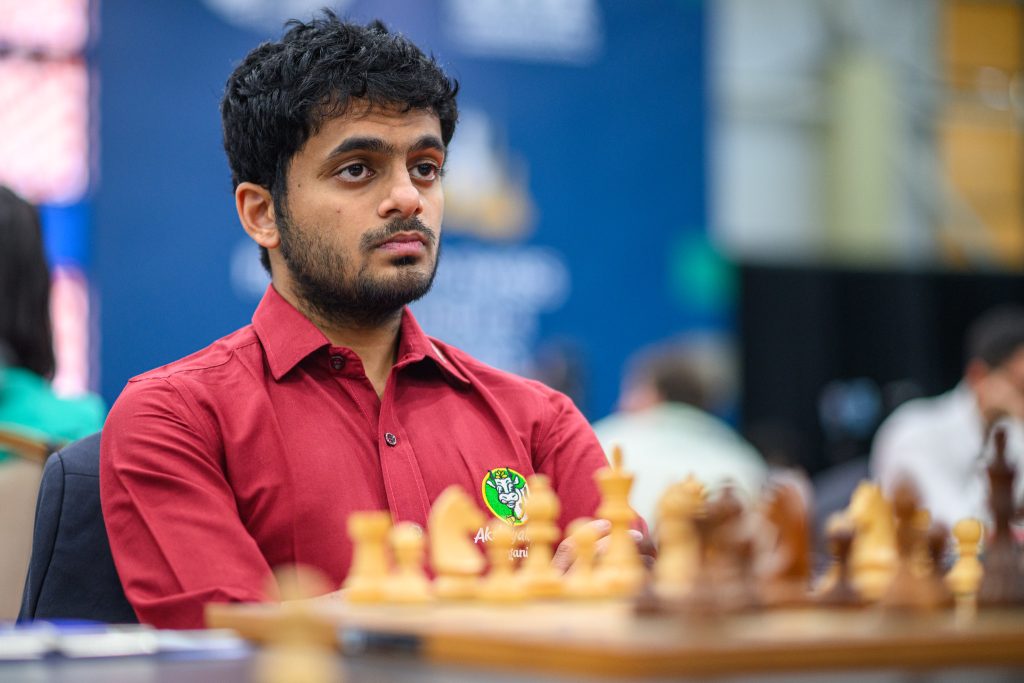
This achievement places Nihal among the elite ten Indian players who have broken into the exclusive “2700 Club.” It’s not just a number — it’s a symbol of relentless focus, unwavering consistency, and the maturity of a player who has been growing steadily under the global spotlight since childhood.
𝐅𝐫𝐨𝐦 𝐏𝐫𝐨𝐝𝐢𝐠𝐲 𝐭𝐨 𝐏𝐨𝐰𝐞𝐫𝐡𝐨𝐮𝐬𝐞
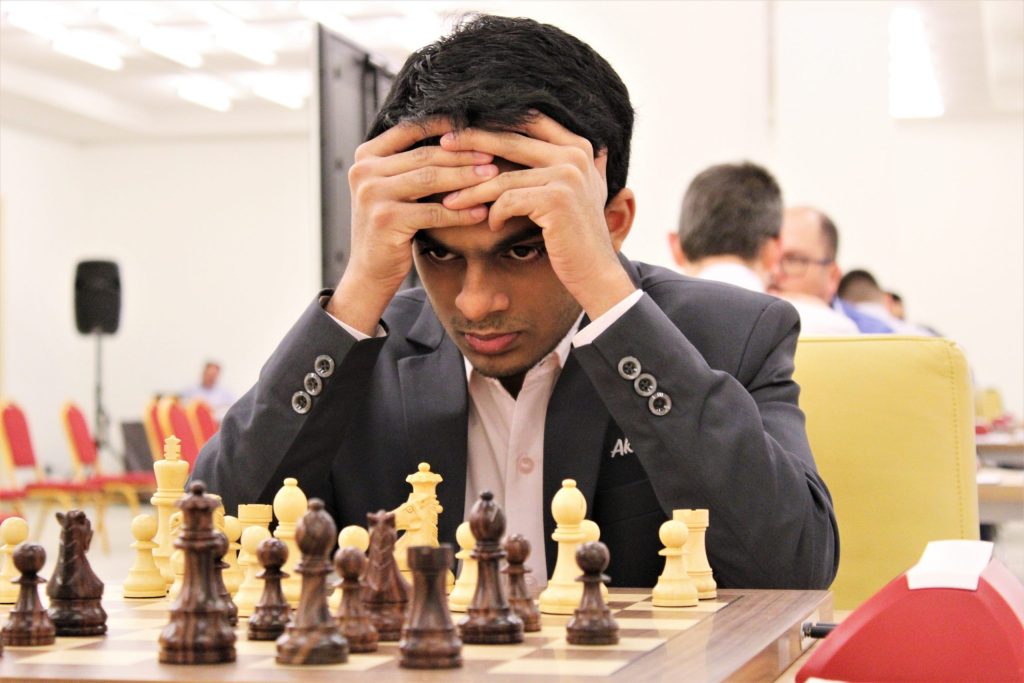
For those who have followed Nihal’s journey, this moment feels inevitable. Known worldwide for his intuitive understanding of chess and lightning-fast calculation, Nihal first captured global attention as a child prodigy who made complex positions look effortless. Over the years, he’s transitioned from a tactical wizard into a complete player, capable of battling the best minds in classical, rapid, and blitz formats alike.
The transformation didn’t happen overnight. It came from years of disciplined training, thoughtful analysis, and the right mentorship — particularly under Grandmaster Vishnu Prasanna, who also coached World Champion D. Gukesh. Together, they fine-tuned Nihal’s approach, shifting his strengths from rapid instincts to deep positional play. That evolution was evident at the FIDE Grand Swiss 2025, where Nihal’s consistent and courageous performance pushed him over the 2700 barrier.
𝐇𝐨𝐰 𝐇𝐞 𝐑𝐞𝐚𝐜𝐡𝐞𝐝 𝐭𝐡𝐞 𝐌𝐚𝐠𝐢𝐜𝐚𝐥 𝐌𝐚𝐫𝐤
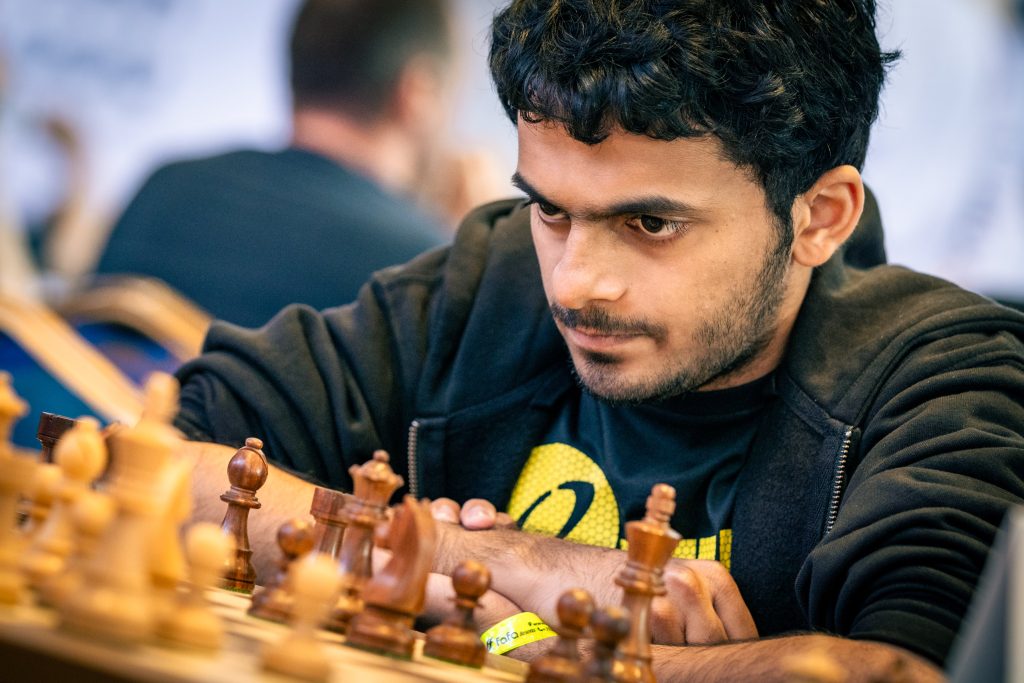
At the Grand Swiss, Nihal faced some of the world’s toughest grandmasters and walked away with a series of inspired results. His poise under pressure, ability to recover from slow starts, and remarkable endgame precision earned him valuable rating points — enough to reach the historic mark.
But the climb didn’t begin there. Earlier this year, Nihal enjoyed a solid run at the Tashkent Open (Agzamov Memorial), displaying a balance of aggression and control that marked his growing maturity. Each event this season added layers of strength to his game — and the October 2025 rating list simply confirmed what chess fans already sensed: Nihal Sarin is ready for the top tier.
𝐓𝐡𝐞 𝐒𝐢𝐠𝐧𝐢𝐟𝐢𝐜𝐚𝐧𝐜𝐞 𝐨𝐟 𝐭𝐡𝐞 𝟐𝟕𝟎𝟎 𝐂𝐥𝐮𝐛
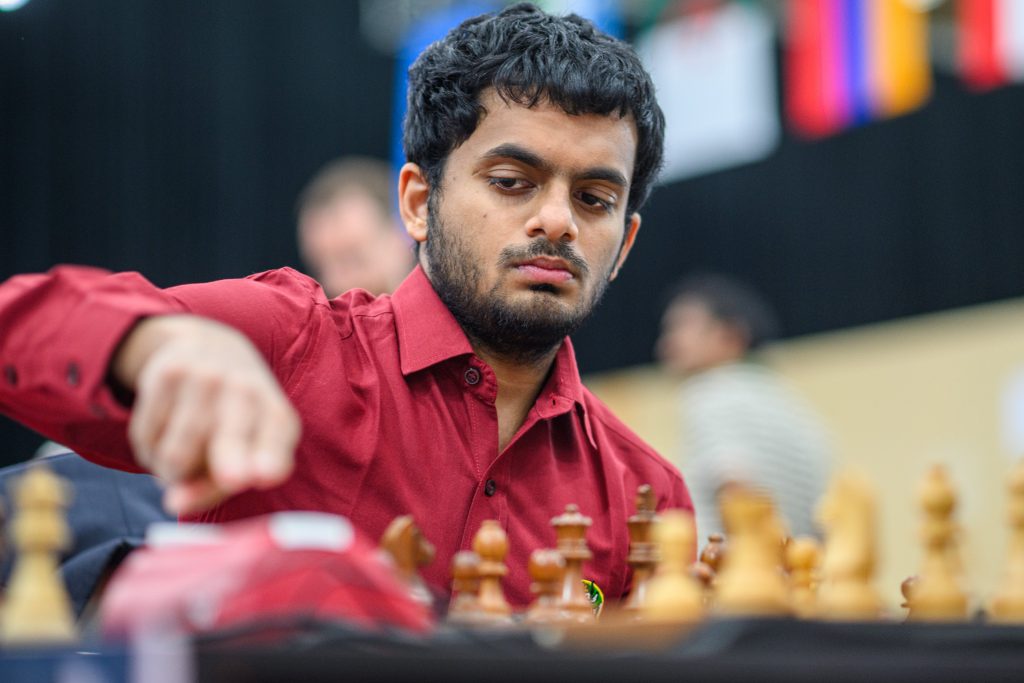
Crossing 2700 isn’t just a milestone — it’s an entrance into chess’s elite inner circle. It’s the point where a player begins to consistently challenge the likes of Carlsen, Ding, Nakamura, and Firouzja in classical events.
For India, it’s yet another proud moment in a golden era of chess excellence. From Anand’s legacy to the rise of Praggnanandhaa, Gukesh, Arjun Erigaisi, and now Nihal Sarin — the nation is crafting a dynasty of thinkers who redefine modern chess. Nihal’s entry into this elite group is a reminder that India’s chess story is only getting stronger.
𝐄𝐲𝐞𝐬 𝐨𝐧 𝐭𝐡𝐞 𝐄𝐮𝐫𝐨𝐩𝐞𝐚𝐧 𝐂𝐥𝐮𝐛 𝐂𝐮𝐩
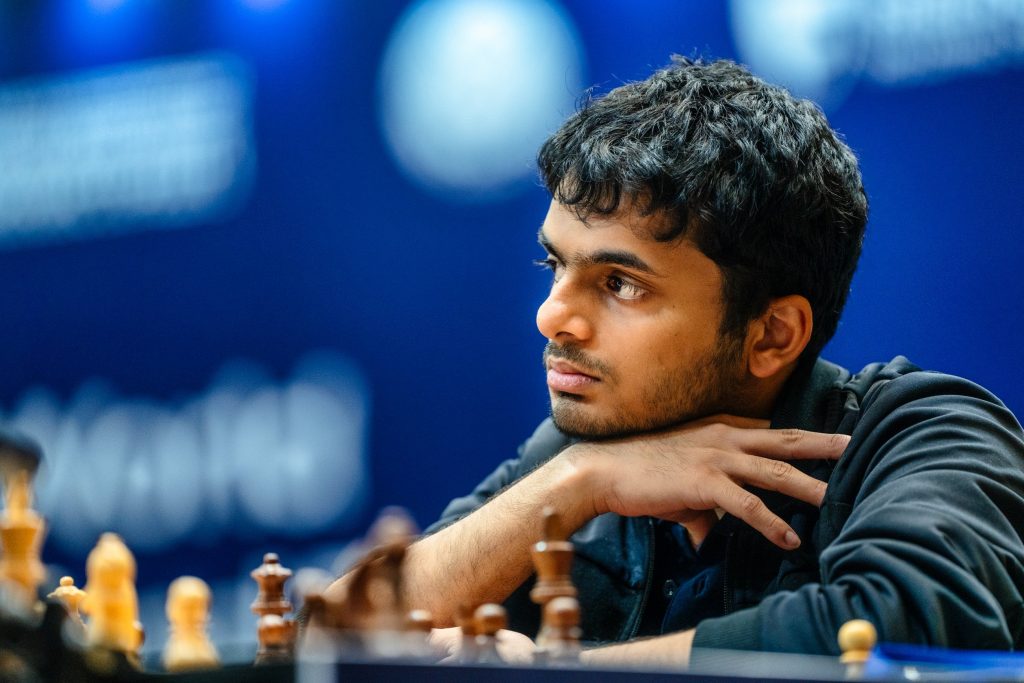
Fresh off this milestone, Nihal is gearing up for his next challenge — representing BayeganPendik Chess Sports Team at the European Club Cup 2025, scheduled from October 19–25. The event will feature some of the world’s strongest players across top European clubs, and Nihal’s inclusion in such a powerhouse team speaks volumes about his growing reputation in international circles.
Fans are eager to see how the newly-minted 2700 player performs under high stakes — a perfect testing ground for a mind that thrives in silence and precision.
𝐀 𝐋𝐞𝐬𝐬𝐨𝐧 𝐟𝐨𝐫 𝐄𝐯𝐞𝐫𝐲 𝐘𝐨𝐮𝐧𝐠 𝐏𝐥𝐚𝐲𝐞𝐫
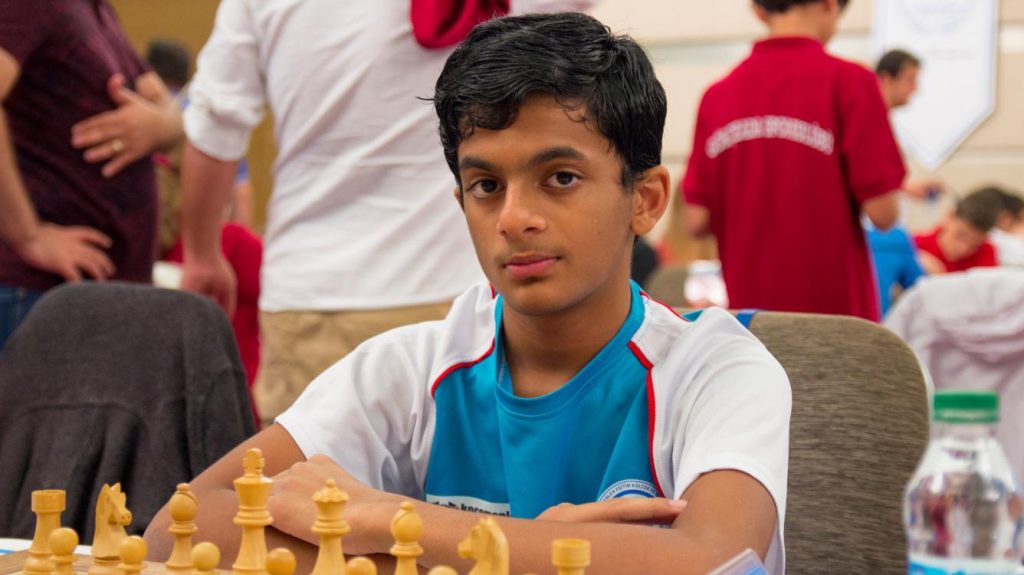
Nihal’s journey is more than an individual achievement — it’s a masterclass in patience and purposeful growth.
Here’s what young players can take from his story:
Consistency wins over chaos. Every tournament, win or lose, was part of Nihal’s larger plan.
Strong mentorship matters. His partnership with GM Vishnu Prasanna highlights the power of structured coaching.
Stay humble, stay hungry. Even with international fame, Nihal remains deeply grounded — and that’s what keeps his game evolving.
His journey shows that brilliance in chess isn’t just about speed or tactics; it’s about turning talent into timeless skill.
𝐁𝐞𝐲𝐨𝐧𝐝 𝐍𝐮𝐦𝐛𝐞𝐫𝐬 — 𝐓𝐡𝐞 𝐄𝐬𝐬𝐞𝐧𝐜𝐞 𝐨𝐟 𝐍𝐢𝐡𝐚𝐥
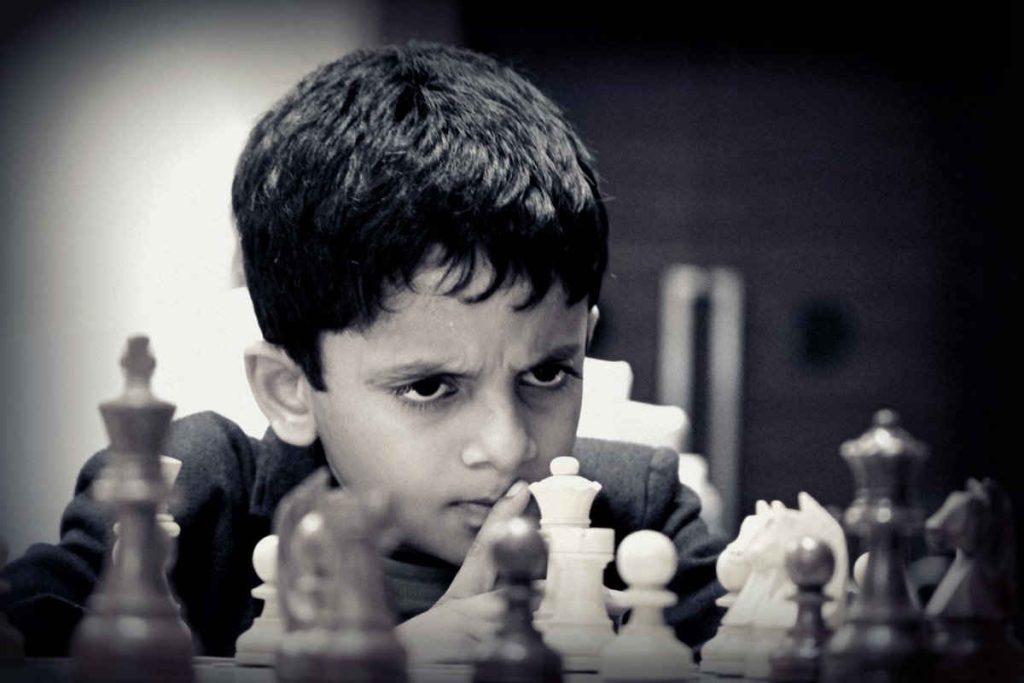
What makes Nihal special is not only his precision but also his personality. Quiet, focused, and often smiling after grueling battles, he plays with the composure of a monk and the creativity of an artist. His presence on the board is calm yet commanding — a rare blend that makes him a true fan favorite.
Breaking into 2700 is just the beginning of what promises to be an inspiring chapter. As the chess world watches closely, one thing is certain: Nihal Sarin isn’t just reaching milestones — he’s redefining them.
𝐅𝐢𝐧𝐚𝐥 𝐓𝐡𝐨𝐮𝐠𝐡𝐭
With each move, Nihal continues to prove that chess greatness is not a matter of age but of attitude. His journey from a gifted child to a world-class grandmaster reflects the future of Indian chess — intelligent, fearless, and unstoppable. 𝐆𝐌 𝐕𝐢𝐬𝐡𝐧𝐮 𝐏𝐫𝐚𝐬𝐚𝐧𝐧𝐚, 𝐂𝐨-𝐟𝐨𝐮𝐧𝐝𝐞𝐫 𝐨𝐟 𝐭𝐡𝐞 𝐌𝐚𝐝𝐫𝐚𝐬 𝐒𝐜𝐡𝐨𝐨𝐥 𝐨𝐟 𝐂𝐡𝐞𝐬𝐬 𝐚𝐧𝐝 𝐟𝐨𝐫𝐦𝐞𝐫 𝐜𝐨𝐚𝐜𝐡 𝐨𝐟 𝐖𝐨𝐫𝐥𝐝 𝐂𝐡𝐚𝐦𝐩𝐢𝐨𝐧 𝐃. 𝐆𝐮𝐤𝐞𝐬𝐡, continues to inspire and shape the next generation of talents. Nihal’s story is living proof of what expert training and dedication can achieve.
So why wait? 𝐄𝐧𝐫𝐨𝐥𝐥 𝐲𝐨𝐮𝐫 𝐤𝐢𝐝𝐬 𝐚𝐭 𝐭𝐡𝐞 𝐌𝐚𝐝𝐫𝐚𝐬 𝐒𝐜𝐡𝐨𝐨𝐥 𝐨𝐟 𝐂𝐡𝐞𝐬𝐬— where future champions like Nihal and Gukesh begin their journey to rule the chess world.
𝐖𝐡𝐚𝐭𝐞𝐯𝐞𝐫 𝐭𝐡𝐞 𝐚𝐧𝐬𝐰𝐞𝐫, 𝐭𝐡𝐞 𝐛𝐨𝐚𝐫𝐝 𝐢𝐬 𝐫𝐞𝐚𝐝𝐲 — 𝐚𝐧𝐝 𝐬𝐨 𝐢𝐬 𝐡𝐞.
♟️ Ready to Level Up Your Game?
𝐉𝐨𝐢𝐧 𝐌𝐚𝐝𝐫𝐚𝐬 𝐒𝐜𝐡𝐨𝐨𝐥 𝐨𝐟 𝐂𝐡𝐞𝐬𝐬 𝐭𝐨 𝐝𝐞𝐟𝐞𝐚𝐭 𝐲𝐨𝐮𝐫 𝐨𝐩𝐩𝐨𝐧𝐞𝐧𝐭 𝐰𝐢𝐭𝐡 𝐛𝐫𝐢𝐥𝐥𝐢𝐚𝐧𝐜𝐞 𝐚𝐧𝐝 𝐩𝐫𝐞𝐜𝐢𝐬𝐢𝐨𝐧!
📍 Locations: T.Nagar | Anna Nagar | Mandaveli | Online
📞 Call: +91 98404 03376
🌐 Visit: www.madrasschoolofchess.com
📲 Follow us: @madrasschoolofchess
© The Madras School of Chess
Created by Webdzo